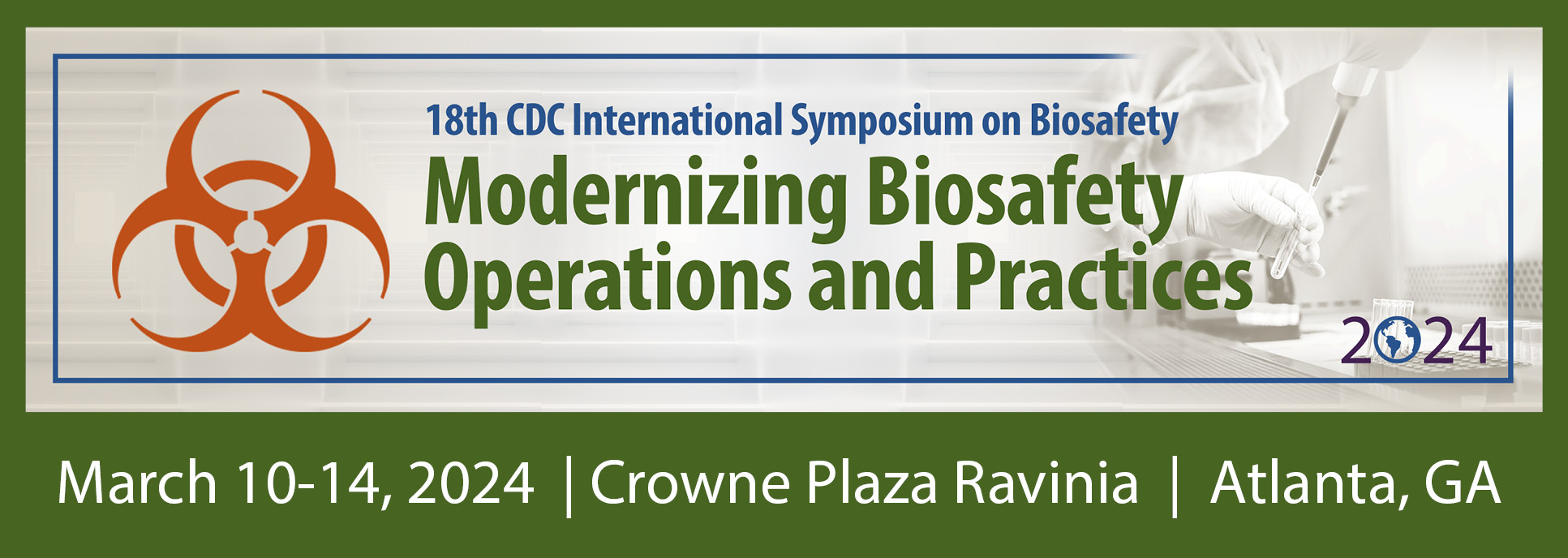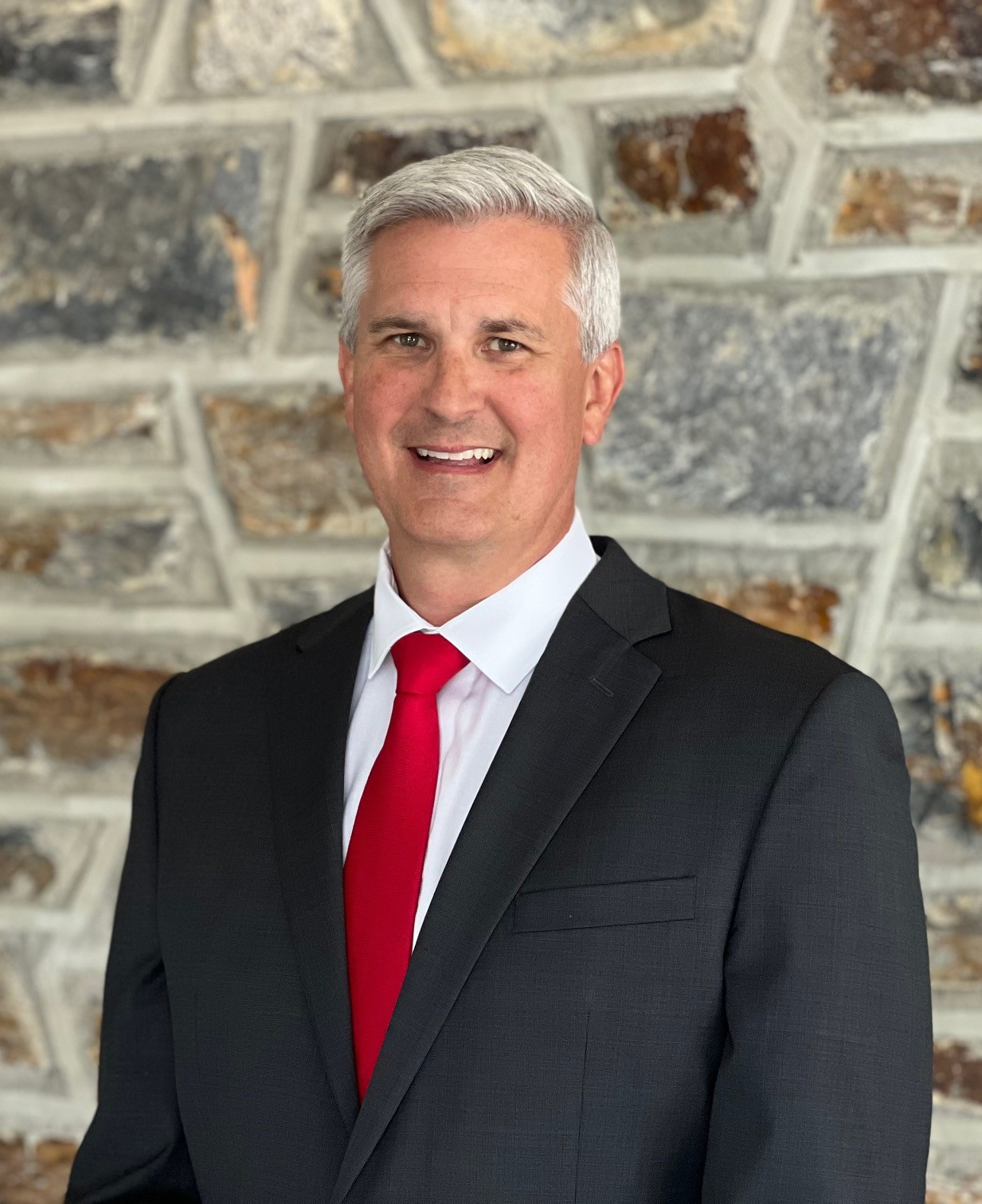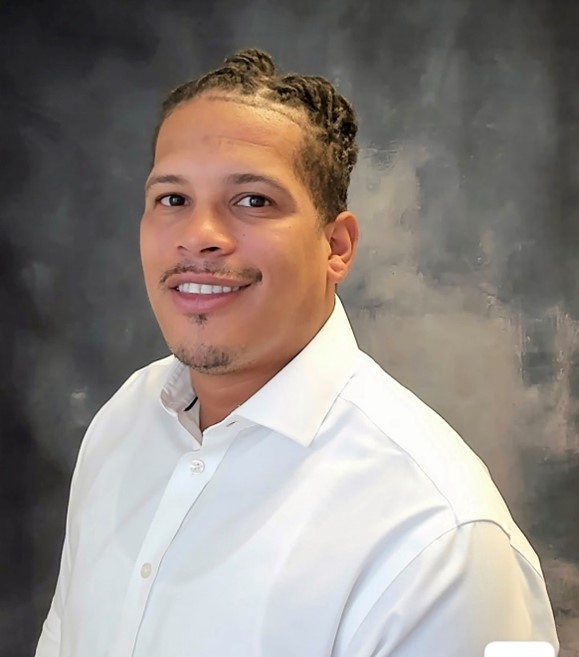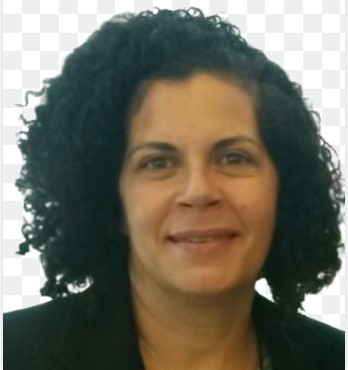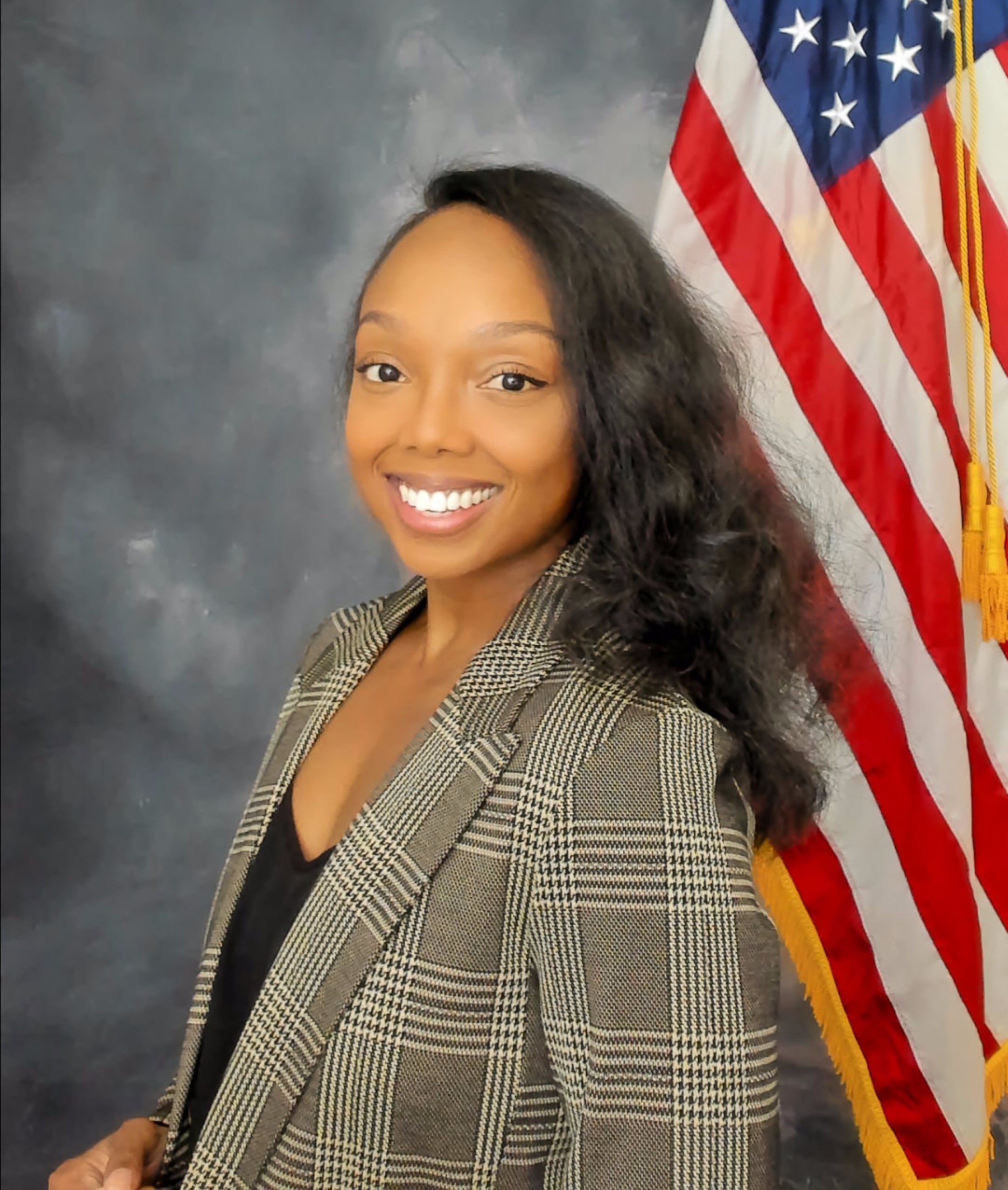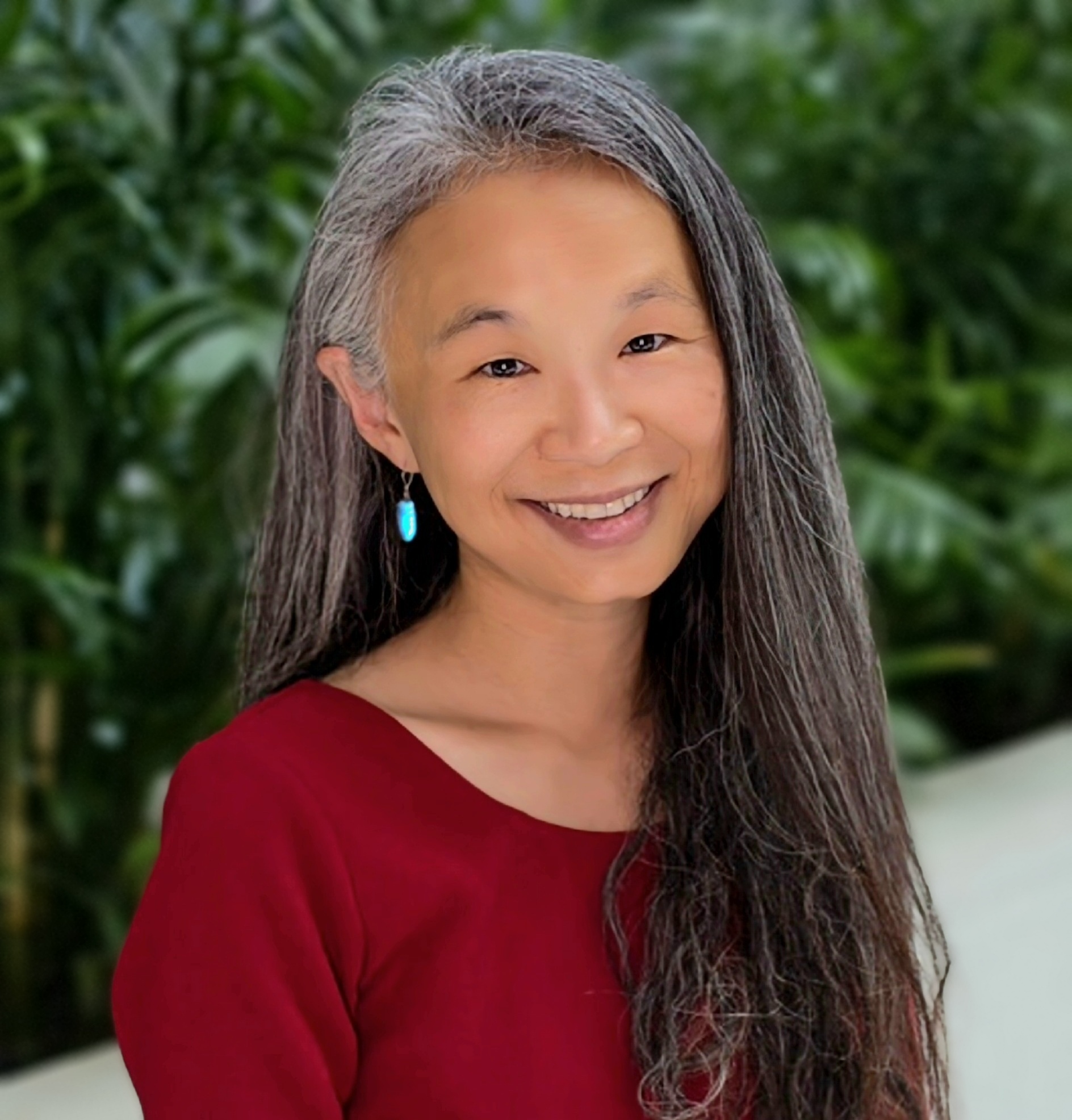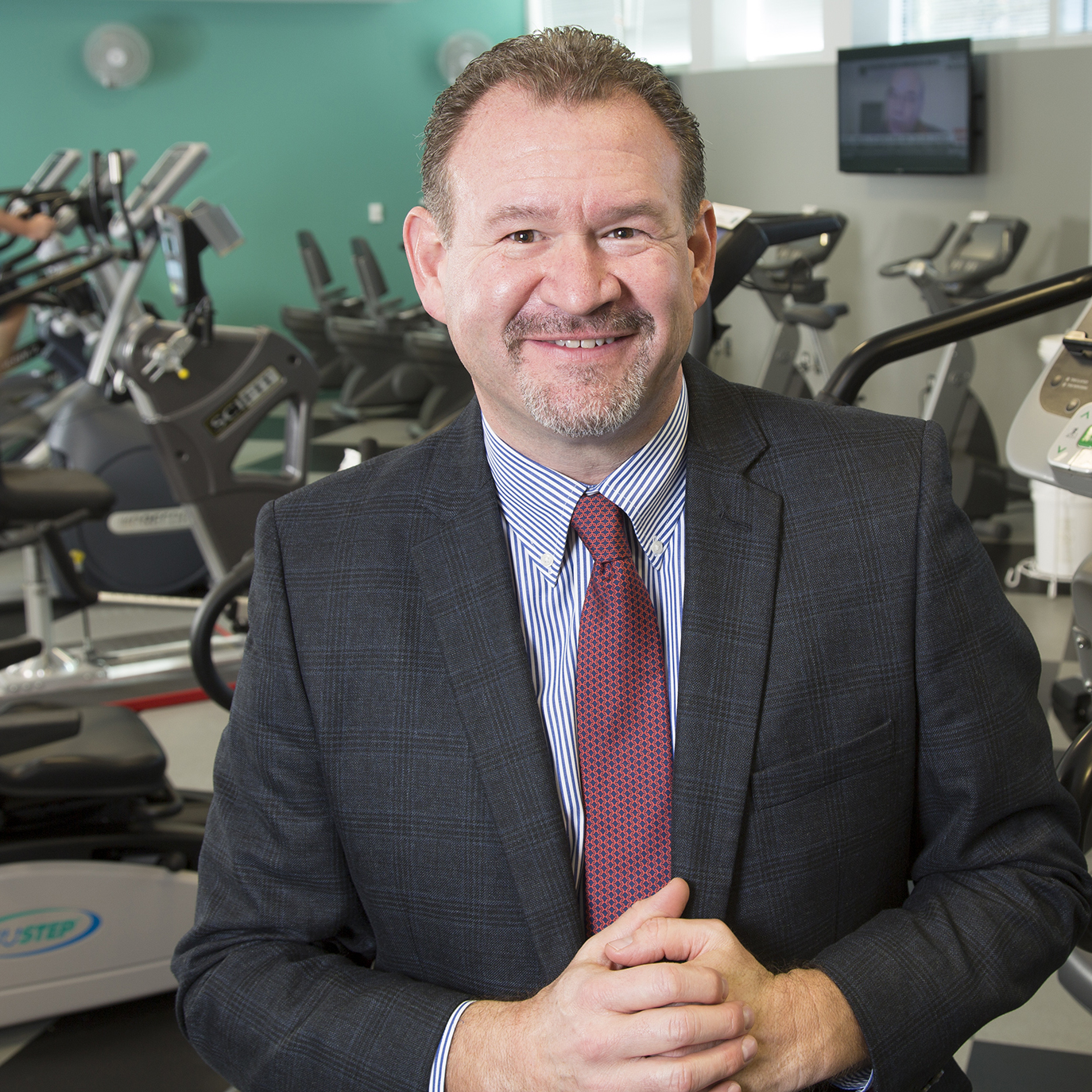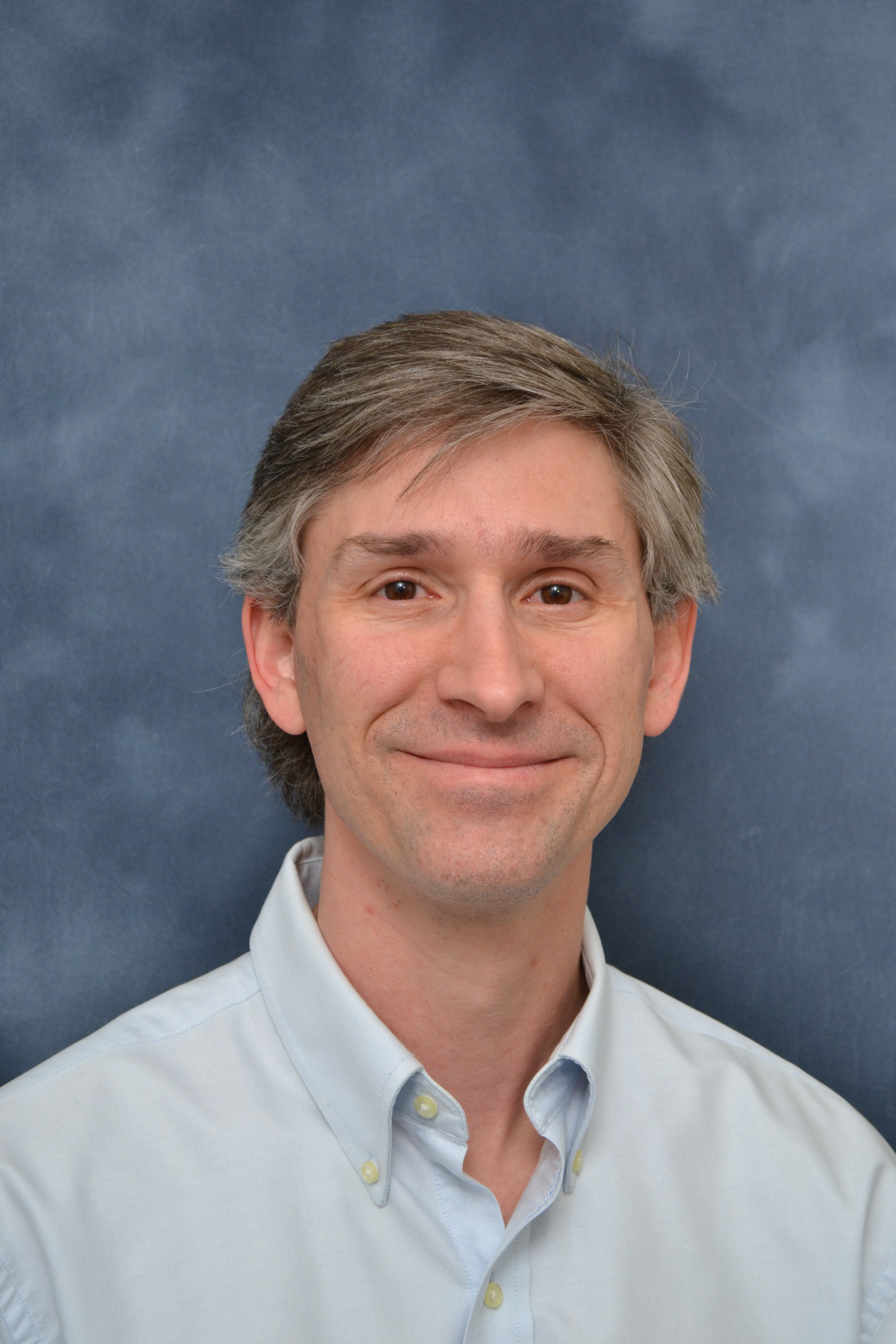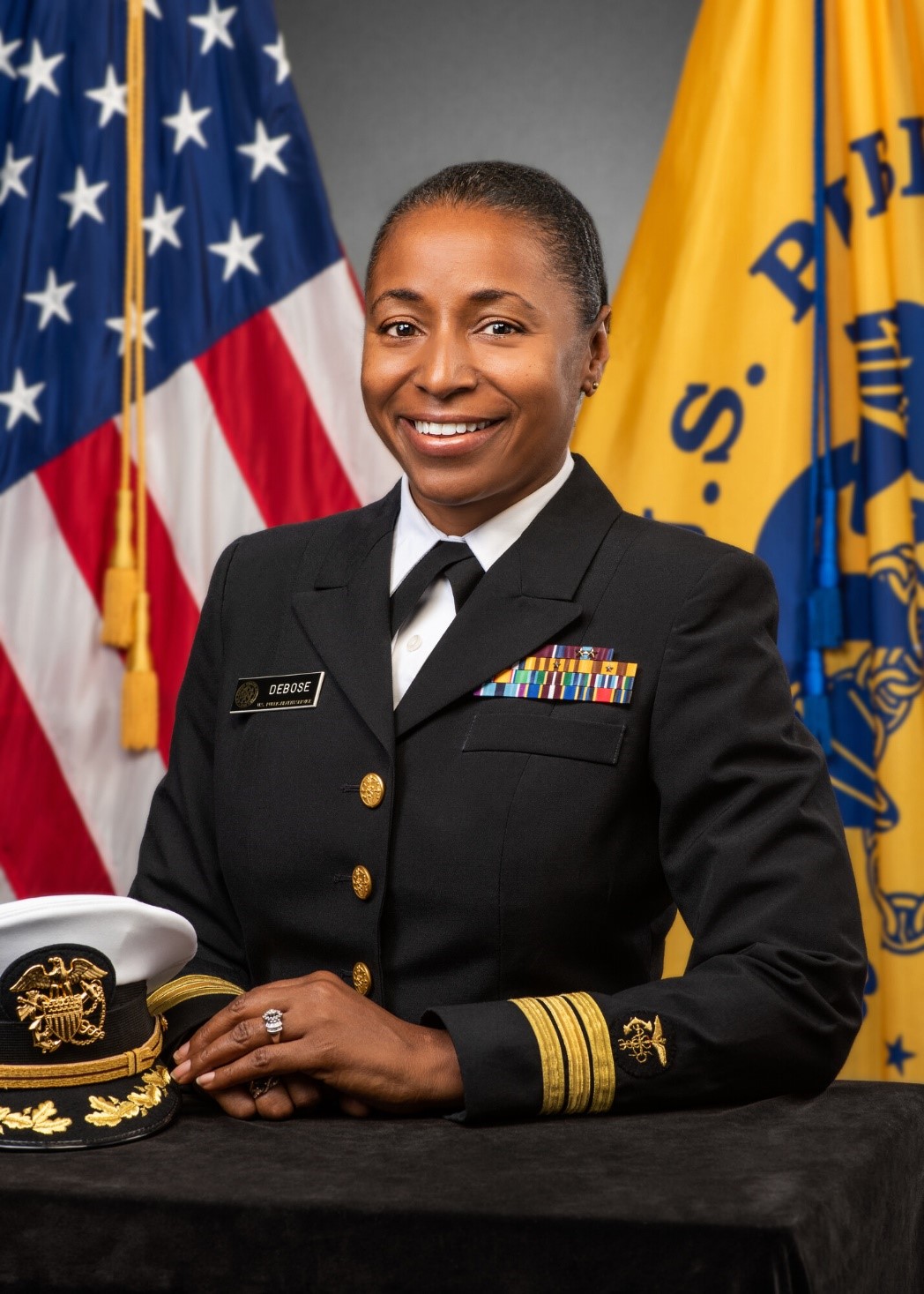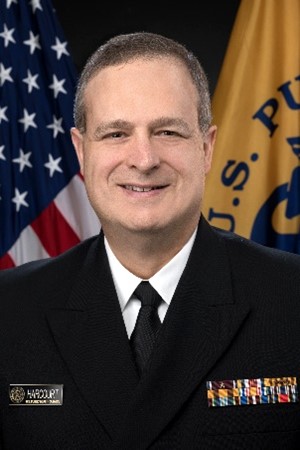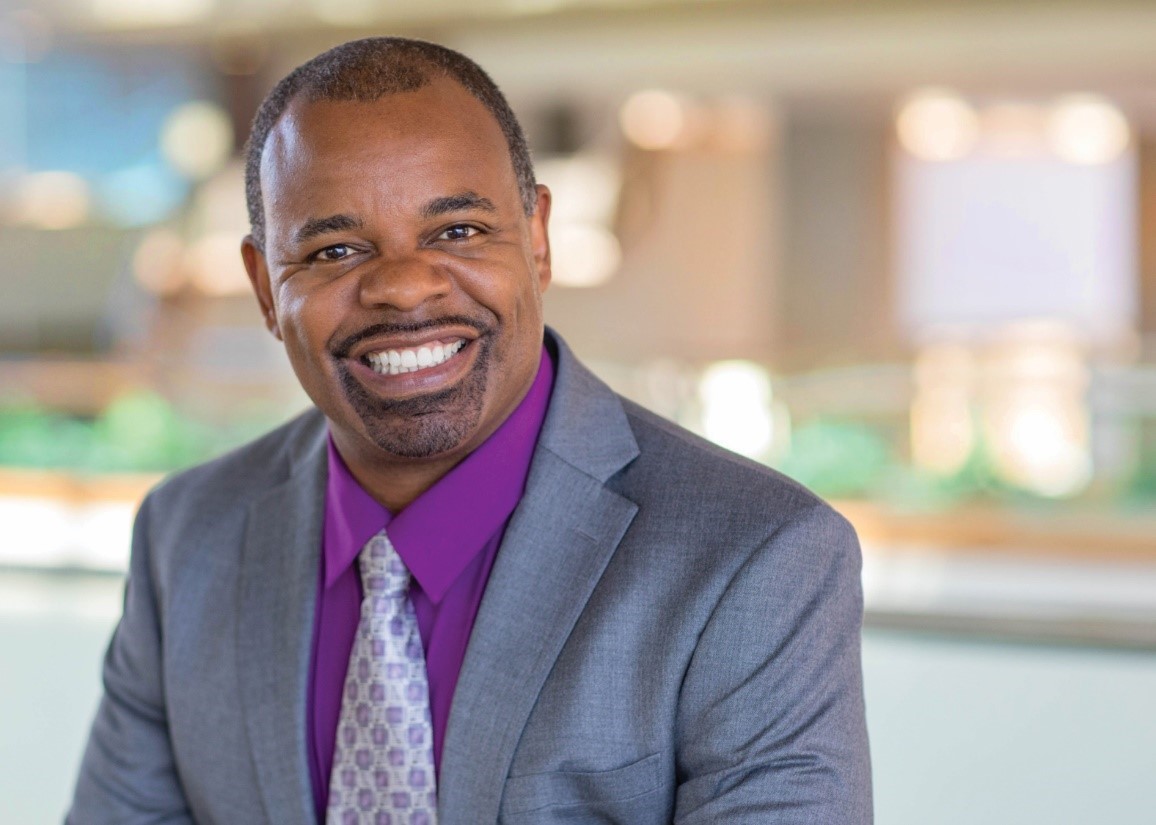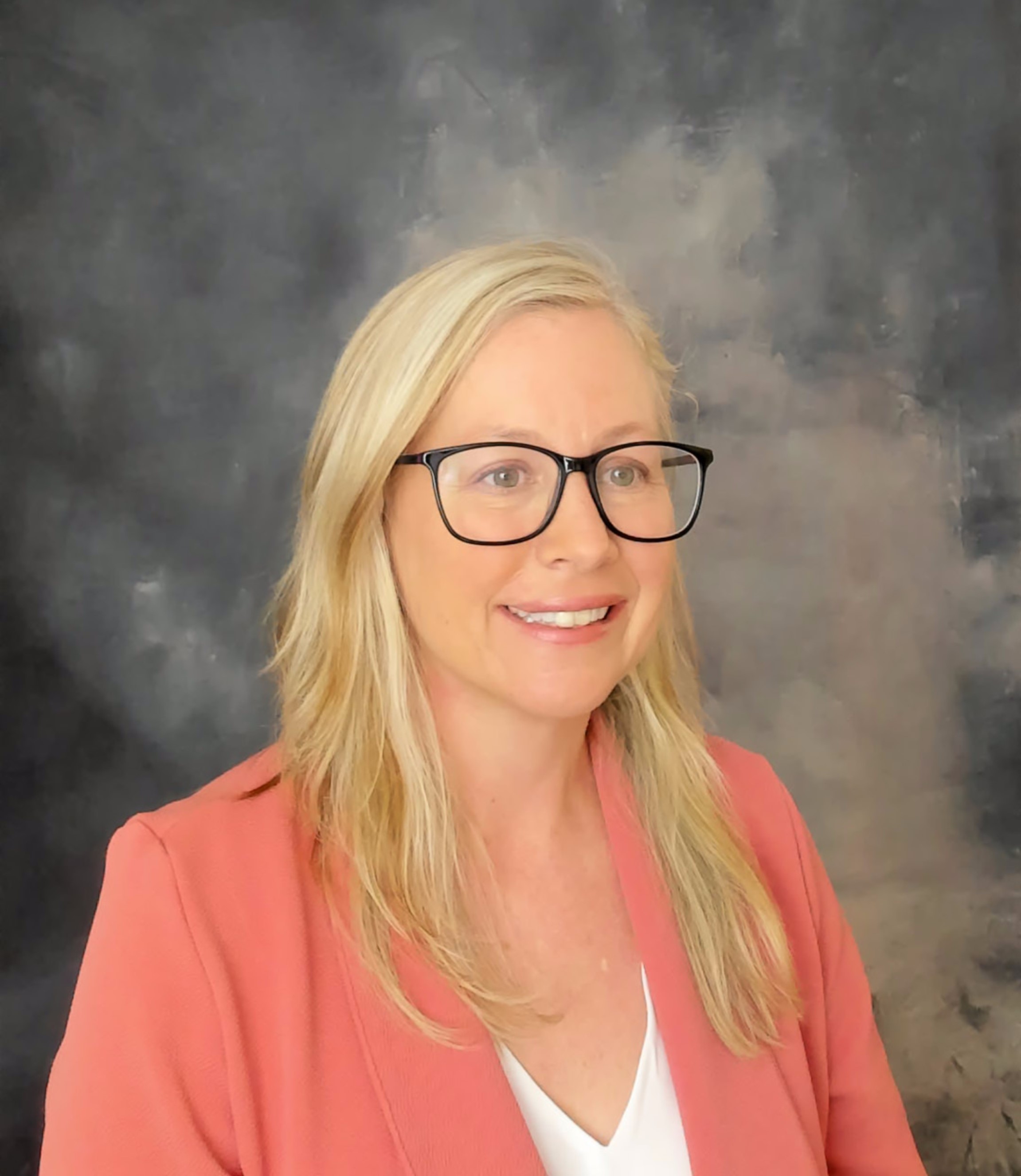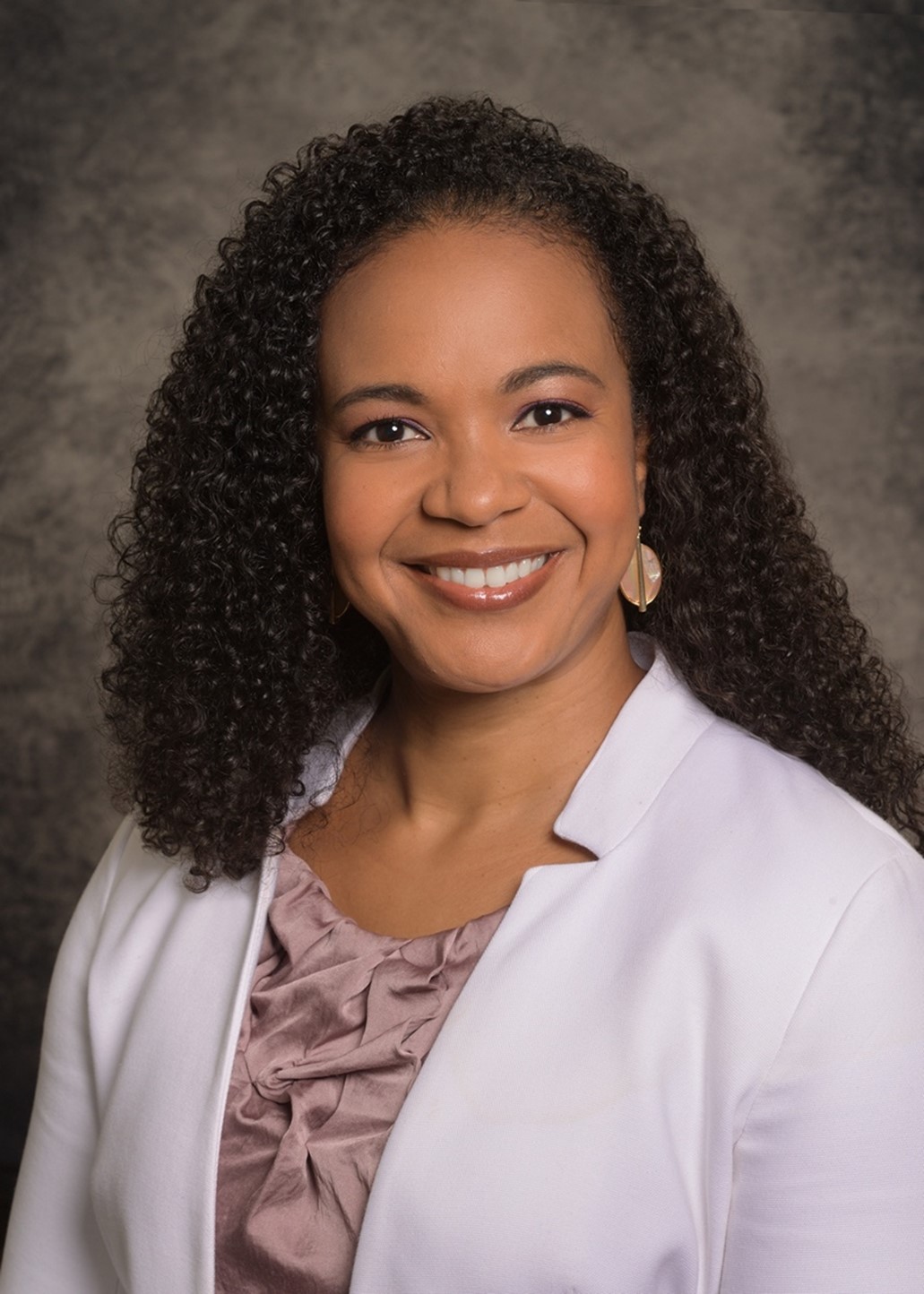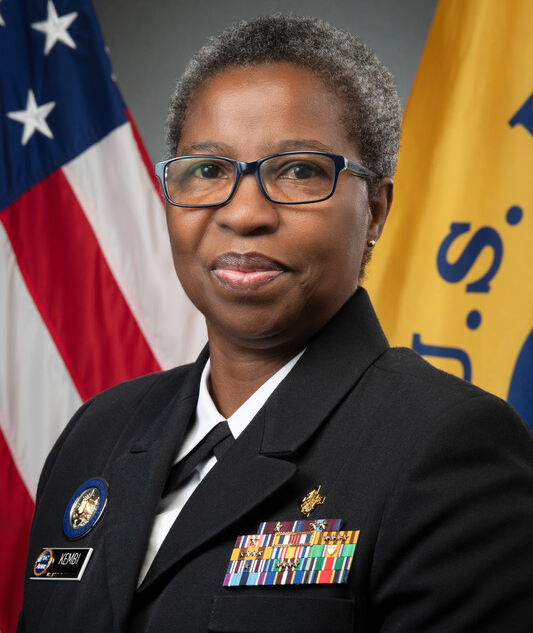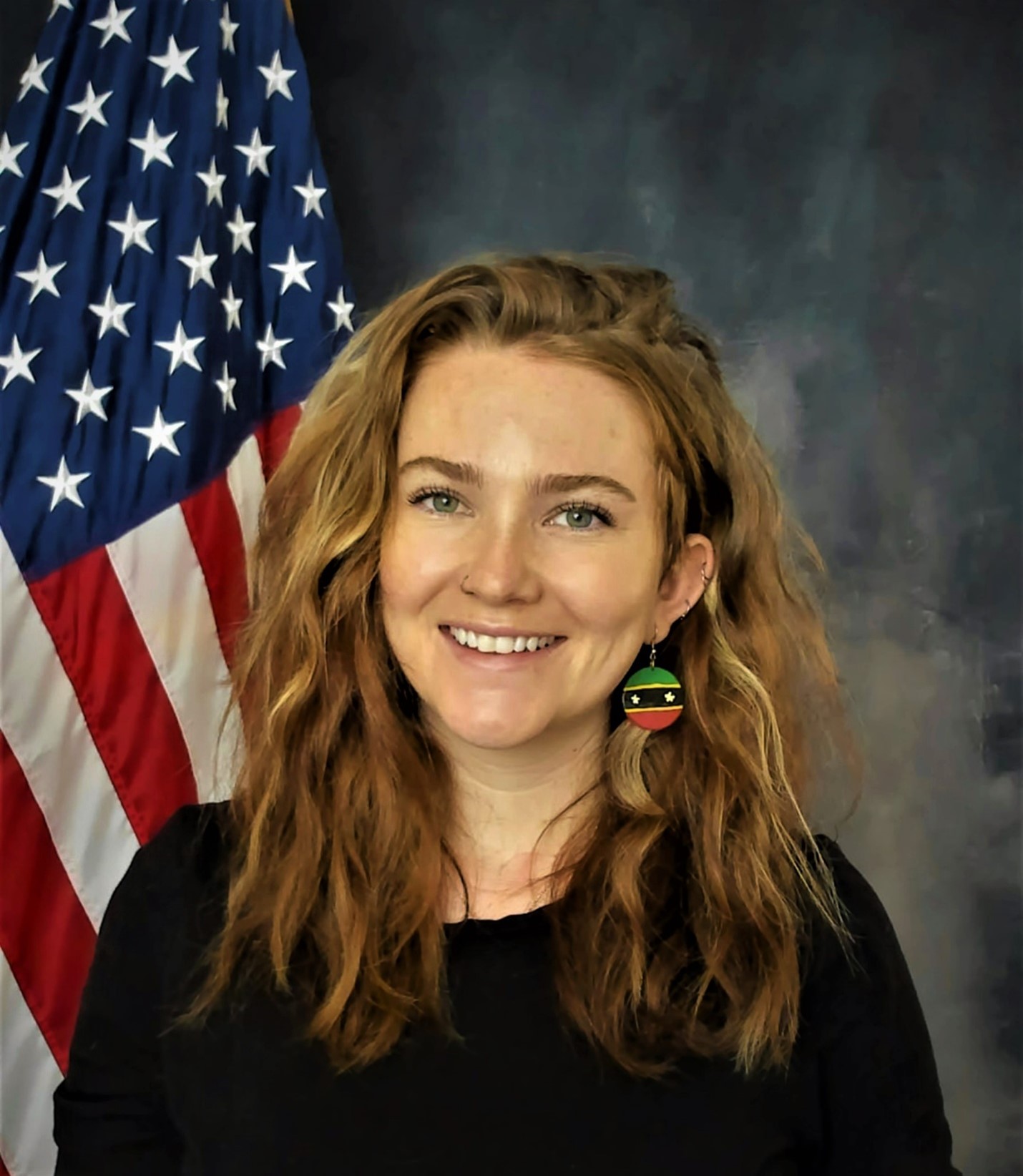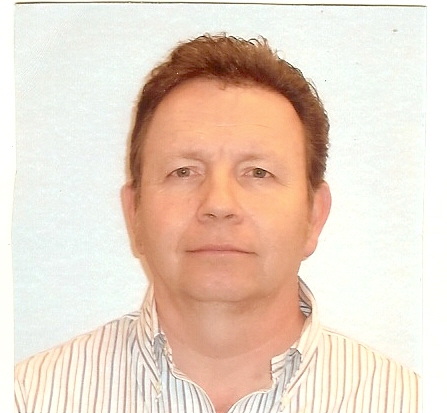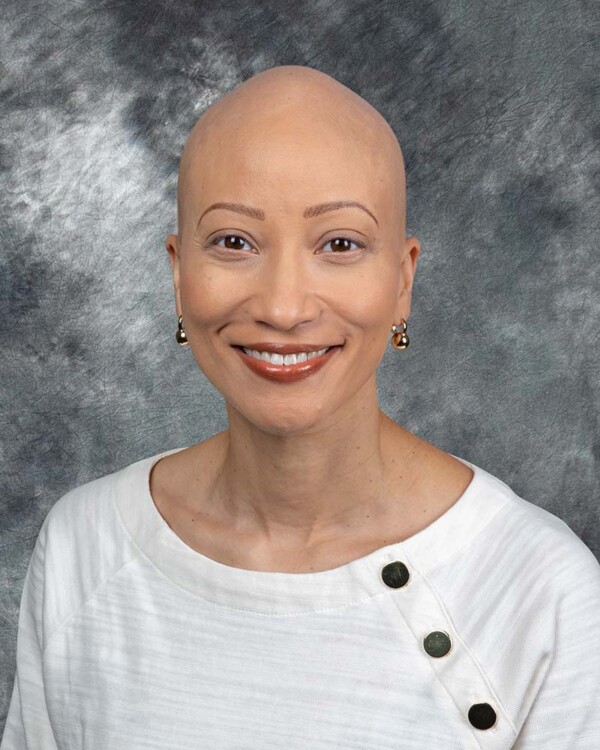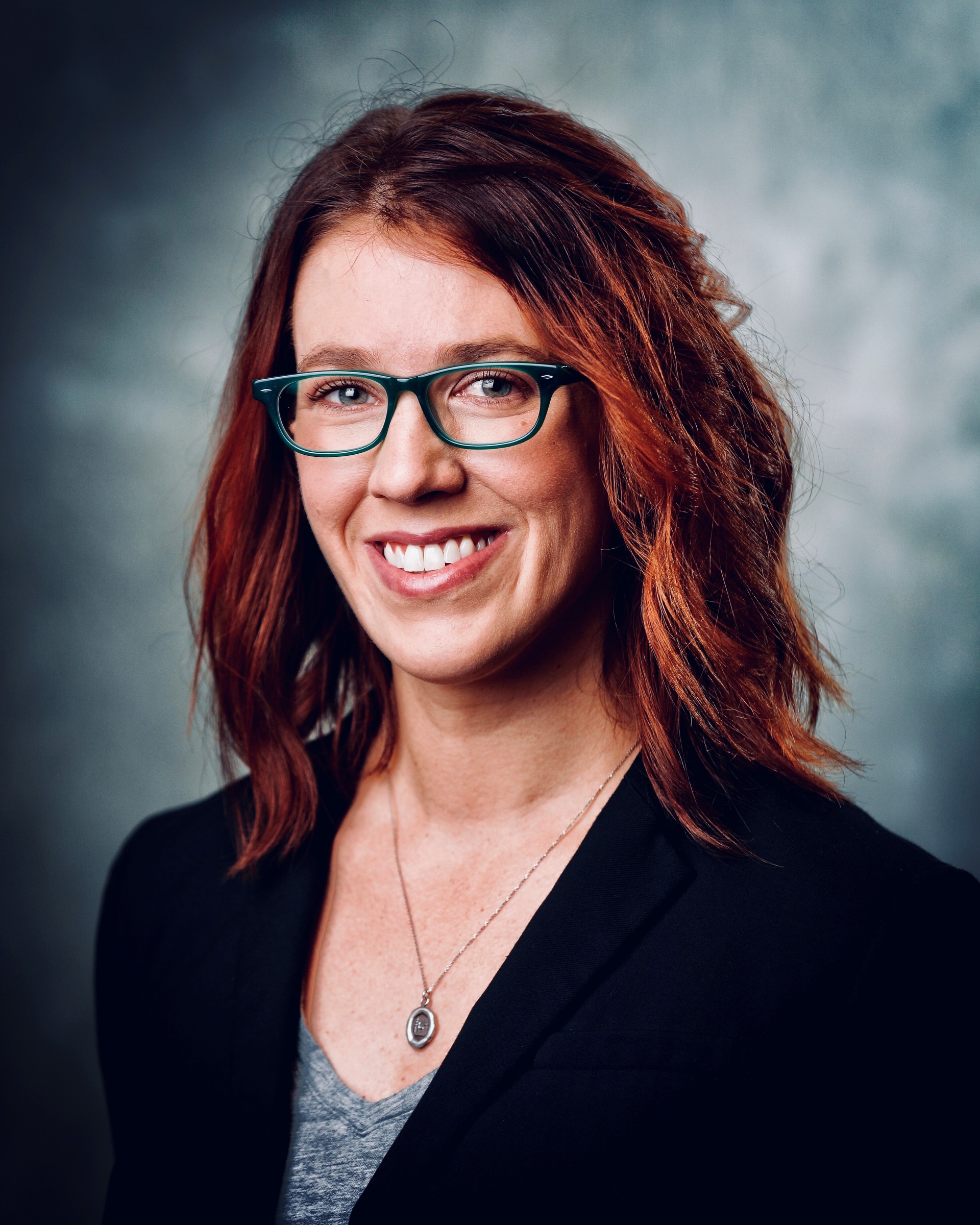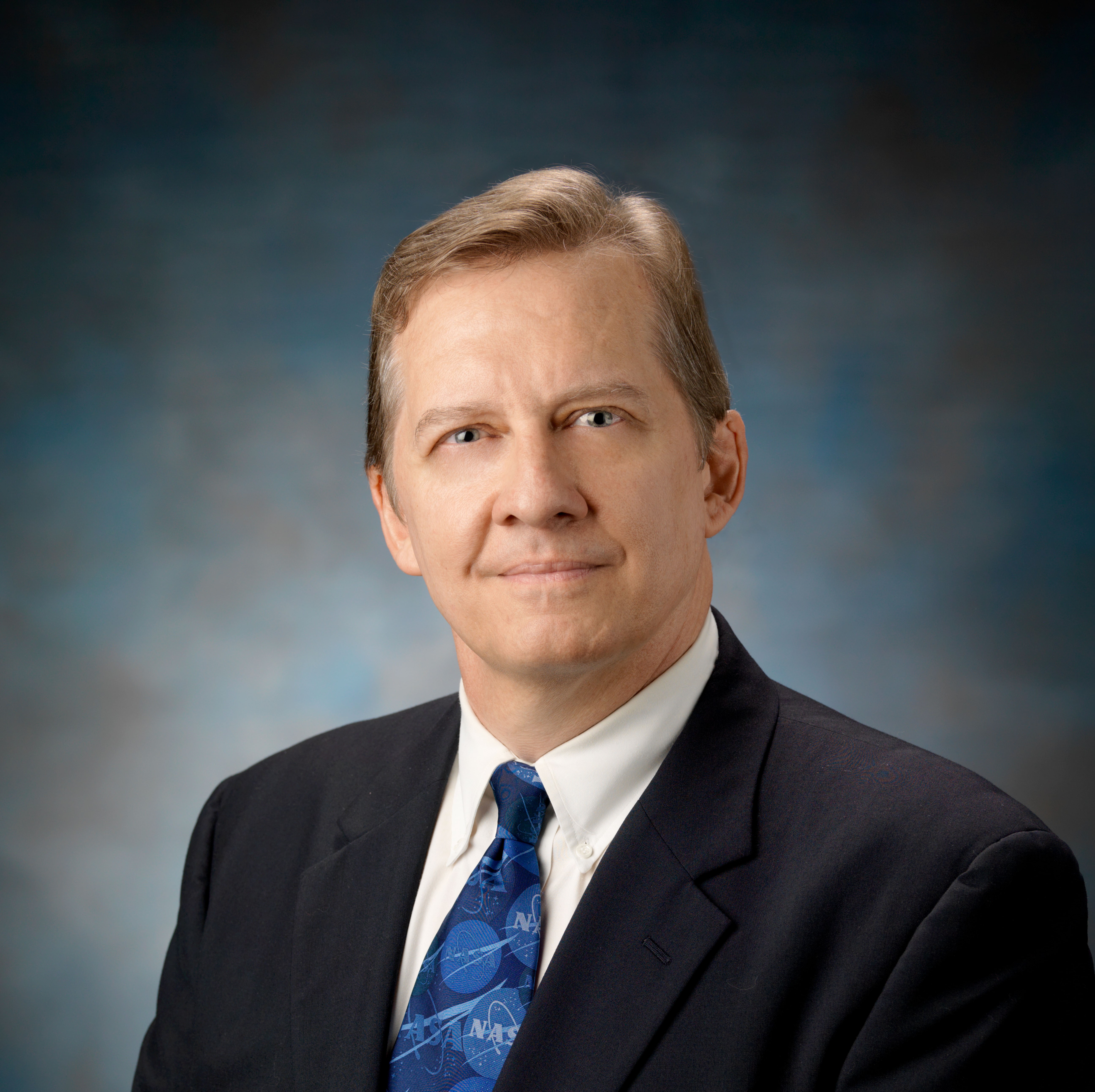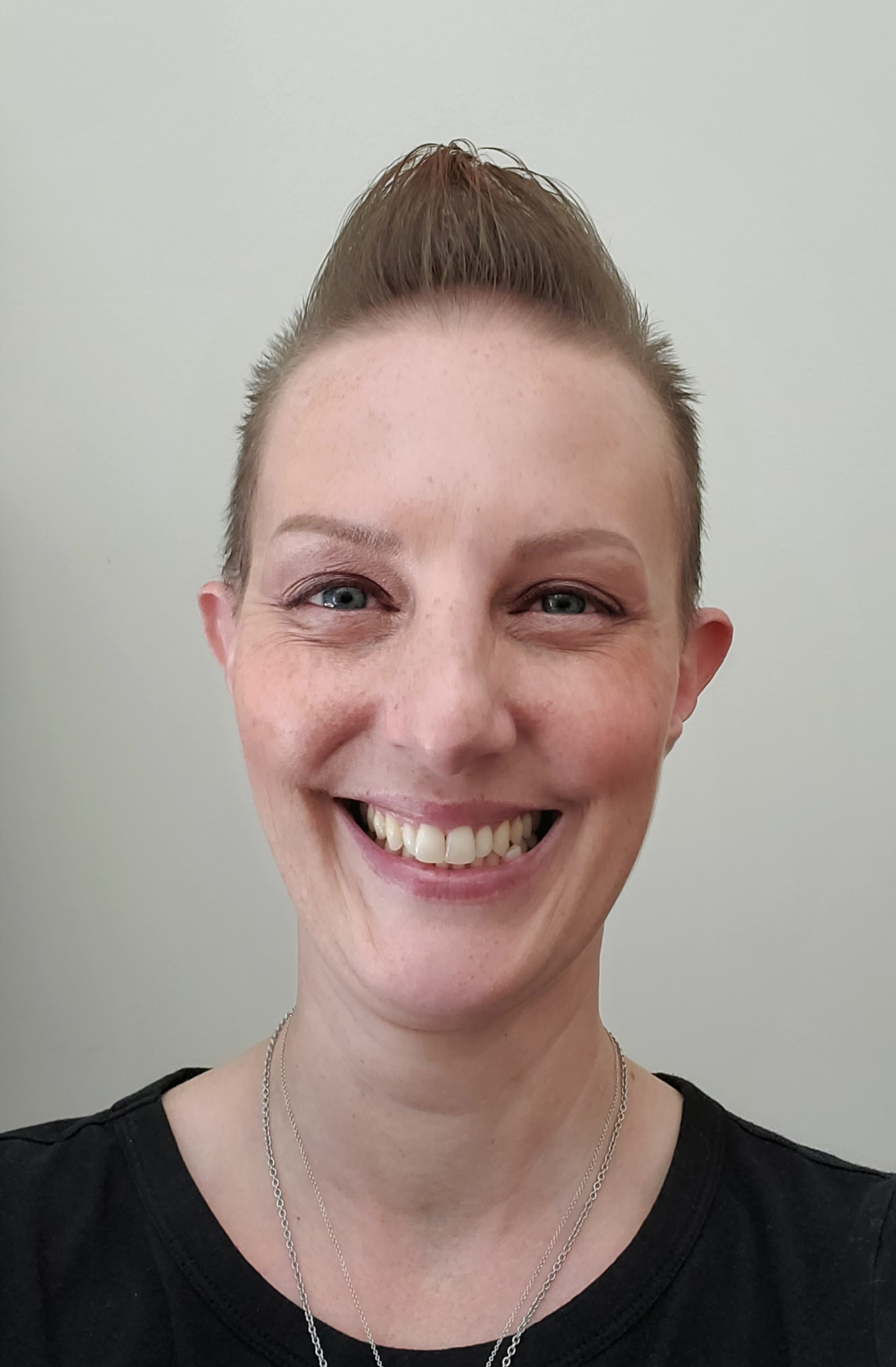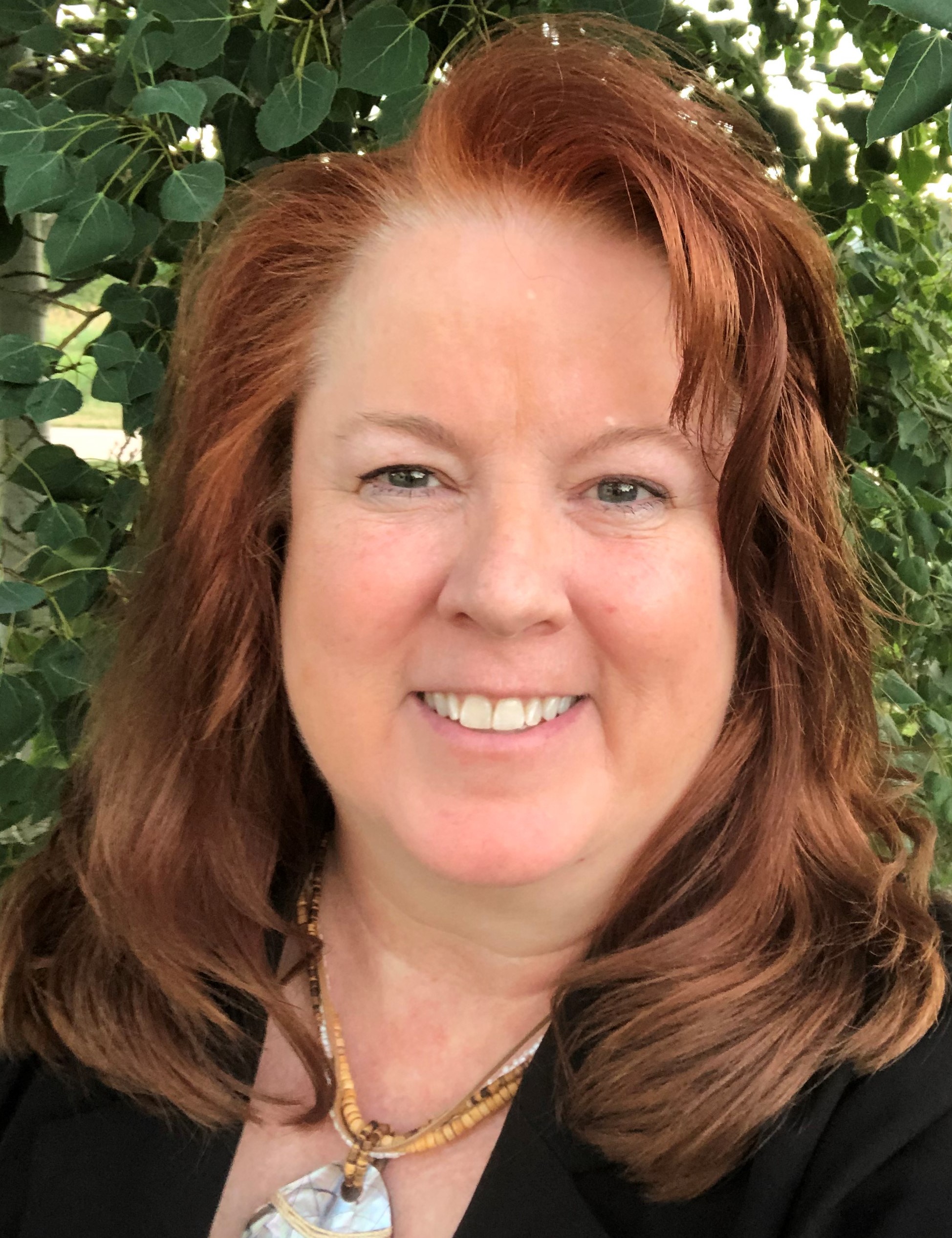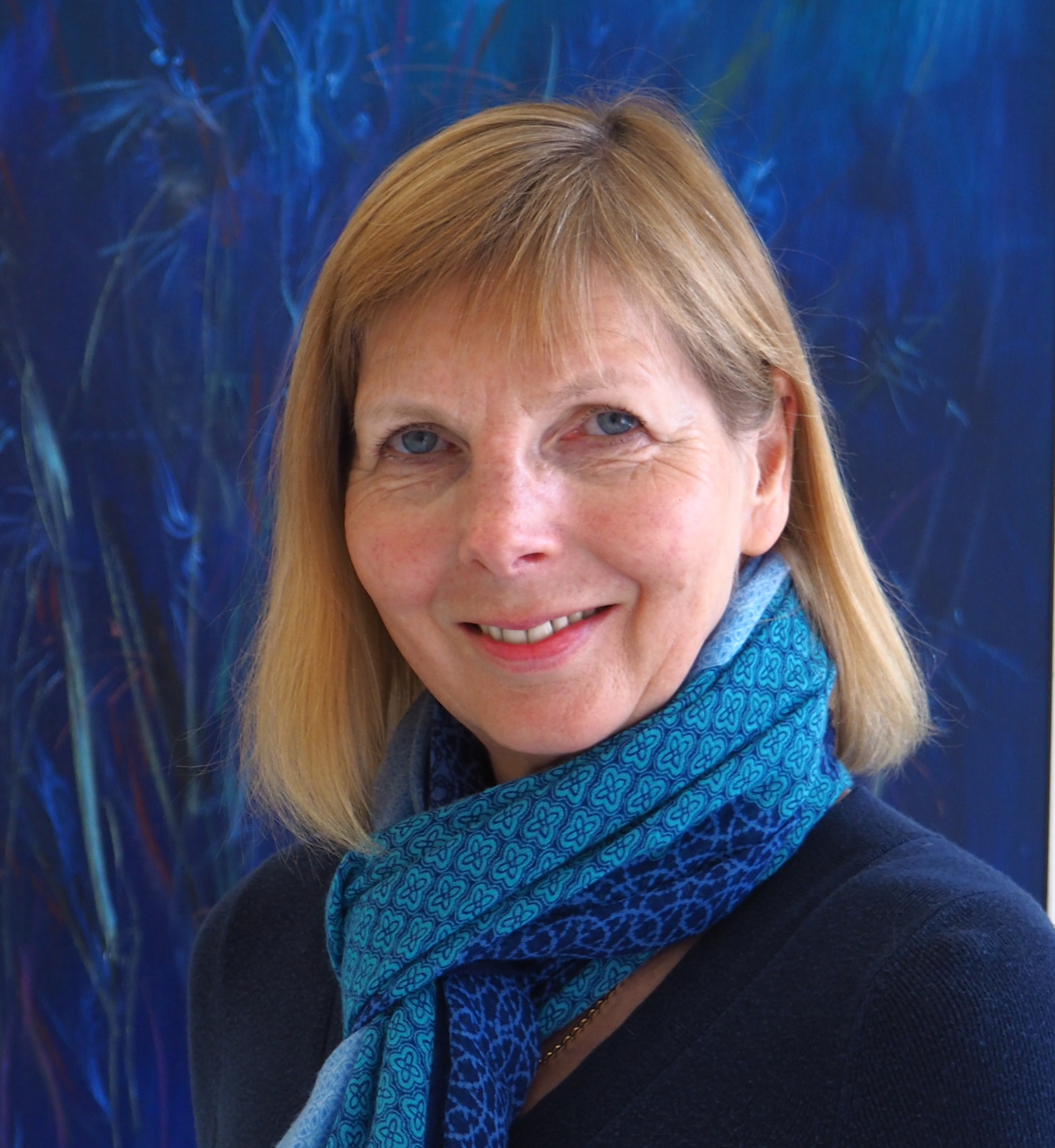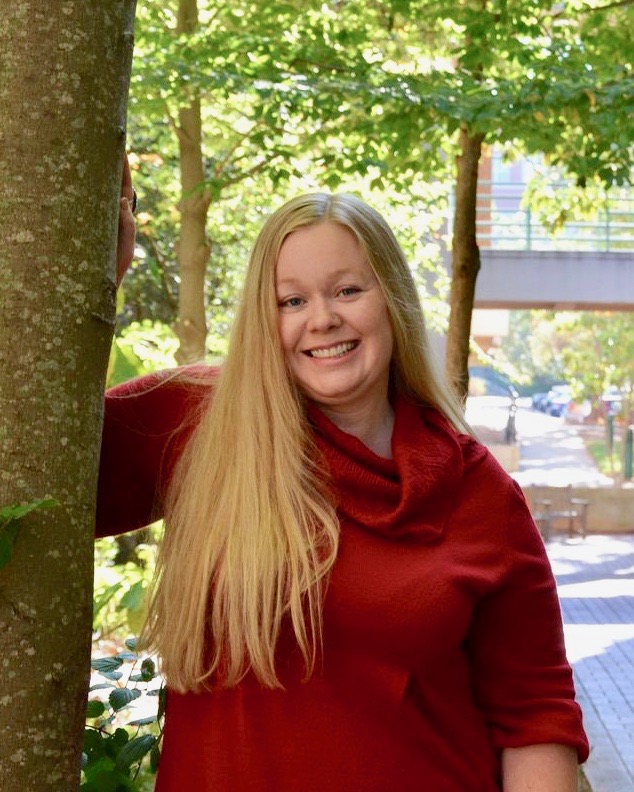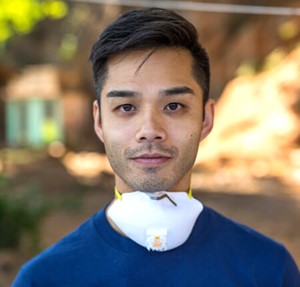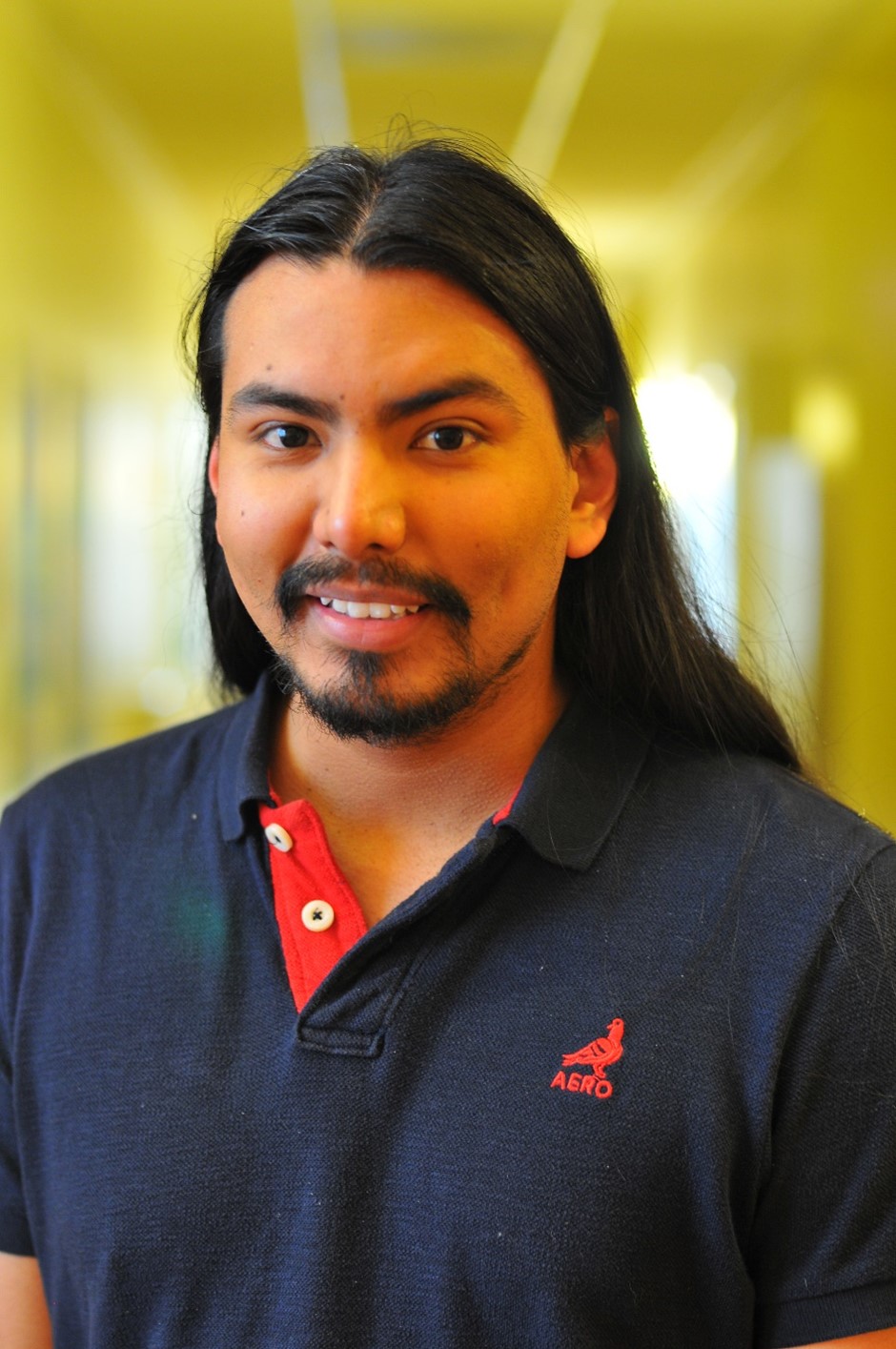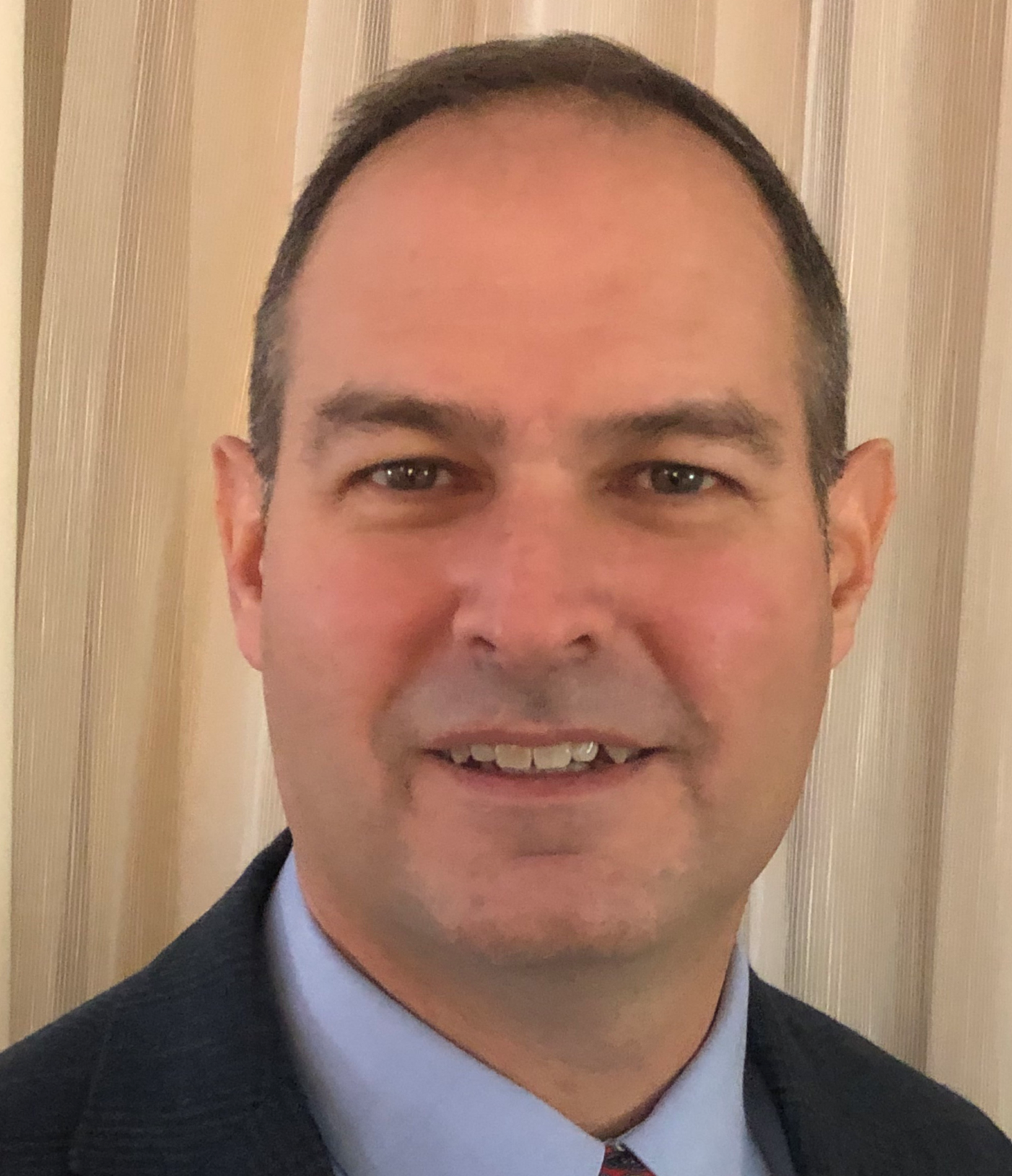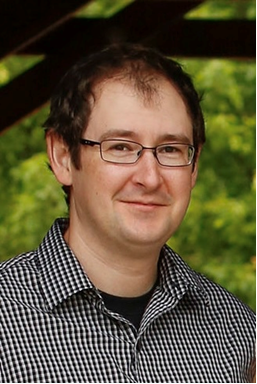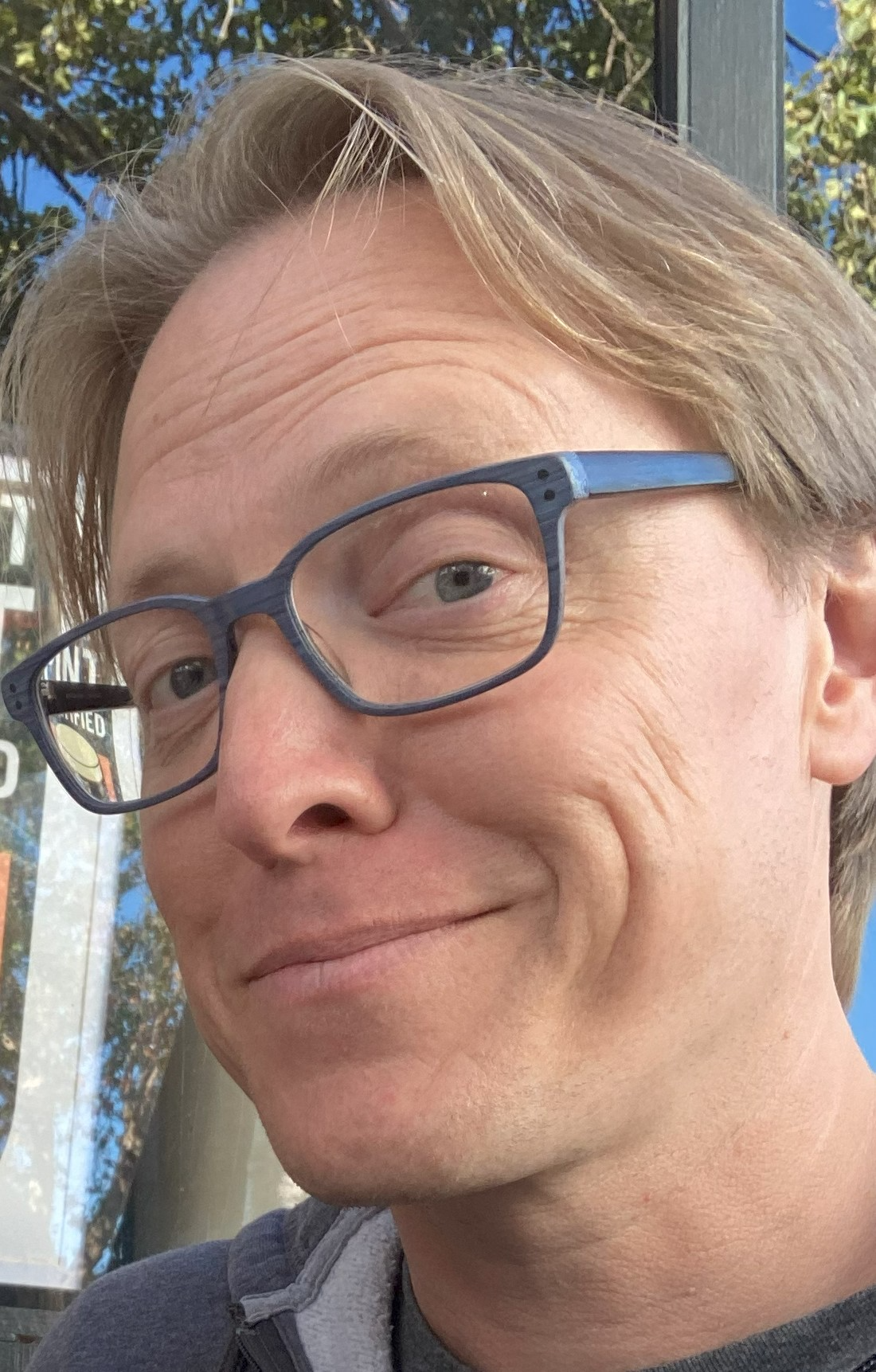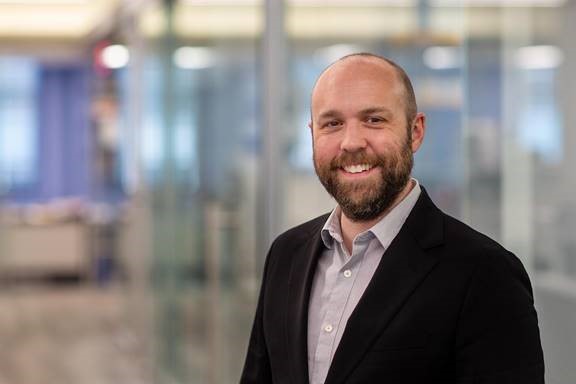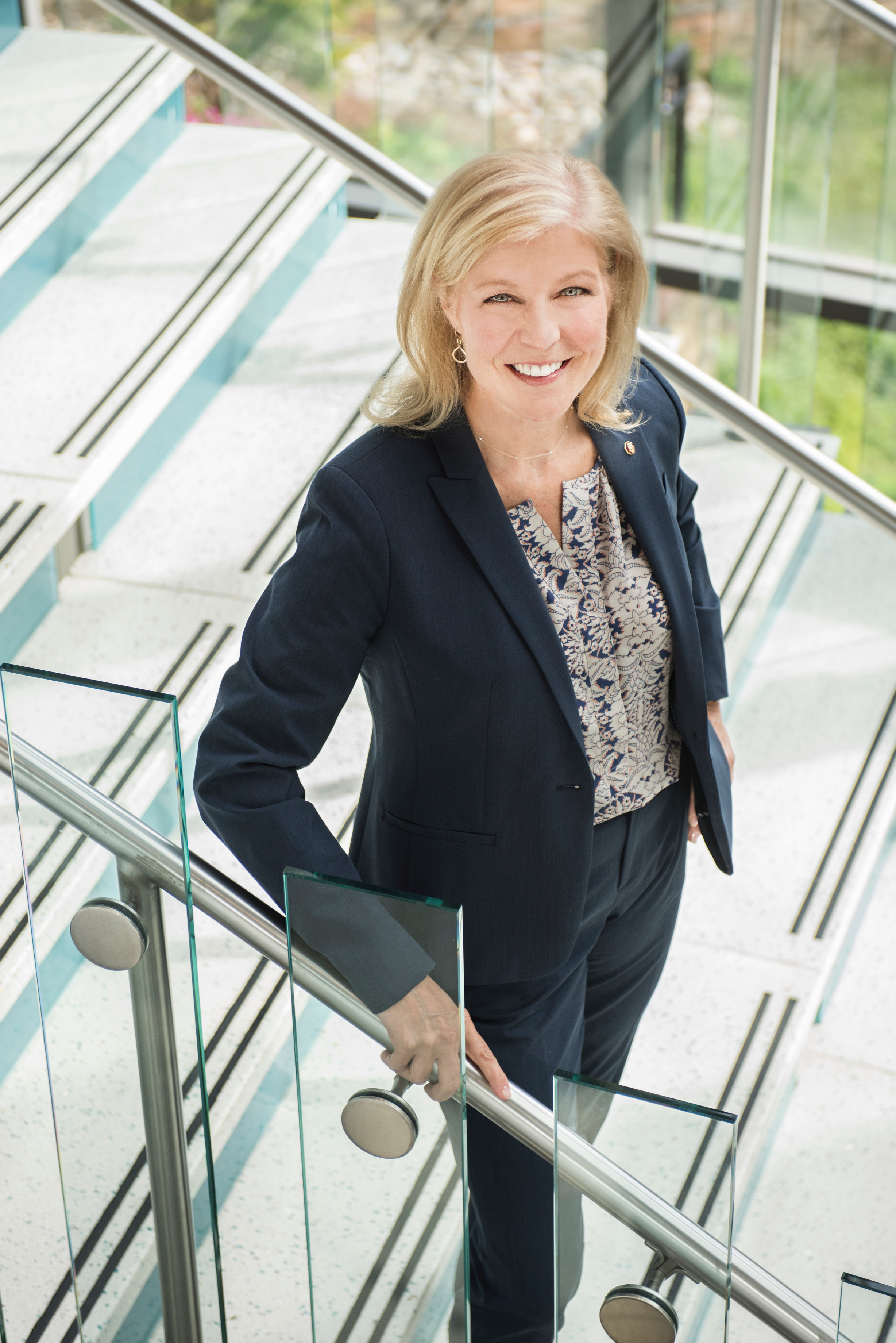Scott has worked at Duke University for 31 years and is the Associate Director of the Duke Regional Biocontainment Laboratory and the Director of Safety & Facilities for the Duke Human Vaccine Institute. He is an Adjunct Associate in Duke’s Department of Medicine and also serves as Program Manager for the Duke Infectious Disease Response Training program.
Scott has a Bachelor’s of Science in biology from Radford University and a Master’s of Science in environmental sciences and engineering from the University of North Carolina at Chapel Hill. He is a certified biosafety professional and has been an active member of the American Biological Safety Association (ABSA International) since 1996, including past service as a Councilor for the Association. Scott is a member and Past-President of the Carolinas Biological Safety Association, an affiliate of ABSA International.
Melvyn Almanzar is High containment manager for the Comparative Medicine Branch in the Division of Core Laboratory Services and Response at the Centers for Disease Control and Prevention (CDC) in Atlanta, GA. Mr. Almanzar-Jordan earned his Bachelor of Arts degree with concentration in Biology (2019) from Hunter College in New York City. He joined the CDC in 2020, where he gained experience working in ABSL 2 and transitioning over to High containment laboratory in August of 2023. He is a registered laboratory Animal Technician for the American Association for Laboratory Animal Science. Mr. Almanzar-Jordan oversees the Comparative Medicine Branch animal care and waste management support in the high containment laboratory.
Dr. Aufra C. Araujo is a health scientist in the Quality and Safety Systems Branch with the Division of Laboratory Systems (DLS) at the Centers for Disease Control and Prevention (CDC). She leads the Extension for Community Healthcare Outcomes (ECHO) Biosafety Program and develops data-driven strategies to improve safety and quality in clinical and public health laboratories.
Dr. Araujo serves as a member on the Association of Public Health Laboratories (APHL) Biosafety and Biosecurity Committee. She works collaboratively with APHL to implement ISO 35001 in public health laboratories in the US.
Aufra has served as Laboratory Advisor to the Global Health Center/Division of Global Health Protection in support of the Indonesia Ministry of Health and as CDC’s Laboratory Leadership Service program lead. Additionally, she has participated in several CDC outbreak and preparedness responses including the COVID-19 Emergency Response, the 2019 Polio outbreak investigation in Angola and the 2014 Ebola response in West-Africa.
Dr. Araujo’s research interests include biorisk management, laboratory systems strengthening in low resources settings, pathogen advance molecular detection, high-throughput diagnostic assays and laboratory waste management.
Dr. Araujo earned her Doctorate and Master of Science degrees in microbiology from the Universidade de Sao Paulo, Sao Paulo, Brazil.
Dr. Mary Casey-Moore is a Health Scientist within the Center for Disease Control and Prevention’s (CDC) Division of Laboratory Systems. With a rich academic foundation from the University of Missouri-Columbia, Dr. Casey-Moore earned a B.A. in Biology followed by a Ph.D. in Molecular Microbiology, specializing in Virology. Her educational journey was marked by intensive research spanning a broad spectrum of pathogens, with a deep dive into the world of retroviruses. Her Ph.D. research, conducted in a BSL 2+ laboratory, focused on pioneering antivirals against retroviruses, contributing significantly to the field with 14 published manuscripts.
Dr. Casey-Moore’s commitment to biosafety and mentorship shone through as she guided numerous undergraduate students, instilling a rigorous understanding of biosafety practices alongside their research training. Her postdoctoral journey commenced at the CDC in 2020, where she was at the forefront of public health challenges, conducting pivotal surveillance studies on rotavirus and overseeing COVID-19 multiplex testing as a CLIA supervisor.
In her current role as a Health Scientist, Dr. Casey-Moore has been instrumental in developing biosafety tools and resources, such as comprehensive toolkits and e-learning courses, aimed at enhancing biosafety and biosecurity in clinical and public health laboratories. Her recent endeavors focus on promoting biorisk management, striving to improve the implementation of biorisk management systems within clinical and public health laboratory settings, ensuring a safer and more secure bioscience landscape.
As an active Association for Biosafety and Biosecurity (ABSA) member, Dr. Casey-Moore aims to contribute to the biosafety community’s growth and knowledge sharing. Her involvement in the Diversity, Equity, Inclusion, and Accessibility (DEIA) book club and the ColLaborate community underlines her commitment to fostering an inclusive and collaborative environment within laboratory settings.
Dr. Davis most recently served as the deputy branch chief for science for VSDB. In this role, he supported the branch’s diagnostic, surveillance, and research activities by providing scientific knowledge and subject matter expertise. He also participated in pandemic preparedness efforts, including the development and implementation of international collaborations and training to sustain and build laboratory surveillance and research capacity for both seasonal and zoonotic influenza viruses.
Dr. Davis began working in CDC’s Influenza Division as an American Society of Microbiology/National Center of Infectious Disease postdoctoral research fellow from 2005 to 2007. In 2012, Dr. Davis became the team lead of the Zoonotic Virus Team within VSDB. This laboratory team designed experiments to antigenically characterize viruses, analyze genetic and phenotypic data on zoonotic and animal viruses, and interpret results for multiple surveillance and research projects, including evaluation of influenza vaccines. This included assessing the risk that new influenza viruses might emerge and determining through genetic analysis what avian and swine viruses were circulating. Dr. Davis’s team also was responsible for monitoring animal influenza viruses with pandemic potential to look for genetic changes that could enable the viruses to spread more easily among people or cause more severe human illness.
Dr. Davis received his Master of Science in Public Health degree from the Tulane University School of Public Health and Tropical Medicine with a focus on parasitology. He received his Doctor of Philosophy degree in Experimental Pathology from the University of Texas Medical Branch Graduate School of Biomedical Sciences. Dr. Davis has earned numerous honors and has contributed to more than 120 peer reviewed publications and book chapters.
CDR Sabrina DeBose, DHSc, MS, RBP, is a Health Scientist at the Center for Disease Control and Prevention, Division of Laboratory Systems, Quality & Safety Systems Branch (QSSB). She proudly serves as a Commander in the United States Public Health Service Commissioned Corps. CDR DeBose has served as a biosafety professional and leader in the field of biosafety for more than twenty years. She has combined experience in biorisk management, regulatory compliance, emergency preparedness, and program management. CDR DeBose currently serves as the Team Lead for the Quality and Safety Systems Safety Core Team, providing technical expertise and guidance in biorisk management to clinical and public health laboratories. Throughout her career at CDC, CDR DeBose served as a Program Manager; in this position, she was responsible for providing high-level oversight and coordinating critical laboratory policies and operations associated with laboratory safety.
Additionally, she served as a Senior Laboratory Inspector with the Federal Select Agent and Toxin Program, where she was responsible for overseeing laboratory safety and security practices to ensure entities complied with the requirements of the select agent regulations. CDR DeBose earned her Doctor of Health Science degree from Nova Southeastern University. She is a Registered Biosafety Professional through the American Biosafety Association (ABSA).
Bio coming soon.
Dr. Brian H. Harcourt received his BS at Indiana University (Honors Biology) in 1992 and his PhD at Emory University (Genetics and Molecular Biology) in 1998. He has 29 years of CDC experience in research, diagnostics, and surveillance capacity building in virology and bacteriology, outbreak responses, and biosafety. His published research includes investigating the interaction of Ebola virus and Measles virus with the innate immune system, molecular characterization of Nipah virus, molecular biology of SARS-coronavirus, characterizing mechanisms of reduced susceptibility to antimicrobials in Neisseria meningitidis, and decontamination of PPE for reuse. From 2006-2015, he was a molecular biologist in the Meningitis Laboratory, acquiring the funding, building, and leading the laboratory component of a national surveillance program to monitor reduced susceptibility to antimicrobials in Neisseria meningitidis. To build meningitis laboratory surveillance capacity, he co-designed and led molecular diagnostic training courses teaching and mentoring 80+ microbiologists in Asia, South America, and Africa. Since 2006, he has served as an officer in the Commissioned Corps of the United States Public Health Service. Starting in late 2015, he has served in the Viral Special Pathogens Branch at the US Centers for Disease Control and Prevention as the Biosafety Officer, Select Agent Principal Investigator, and Lead for the Safety and Facilities Team. Responsibilities include training and compliance to biosafety and select agent regulations of ~60 personnel, oversight of 2 BSL-4, 2 BSL-3E, and 7 BSL-2 laboratories, and collaborating on issues of biosafety and biosecurity with the Viral Hemorrhagic Fever Laboratory within the Uganda Virus Research Institute. Serves as a voting member on the Intergovernmental Select Agent and Toxin Technical Advisory Committee (ISATTAC) and Ag-ISATTAC which advises the US Federal Select Agent Program. Has deployed in both laboratorian and leadership roles in domestic and international outbreak responses (bacterial meningitis, pandemic H1N1 influenza, Ebola, and COVID-19).
Dr. K Renee Horton, an advocate for diversity and inclusion in Science, Technology, Engineering, and Mathematics (STEM), works diligently in the community for STEM education and outreach. Founder of Unapologetically Being, Inc., a nonprofit for advocacy and mentoring in STEM, Renee speaks worldwide and continues to make an impact for both personal and systemic change to change the face of STEM.
Born in Baton Rouge, LA, Renee graduated from McKinley High School. She received a Bachelor of Science degree in Electrical Engineering from Louisiana State University and a Doctoral degree from the University of Alabama in Material Science with a concentration in Physics. Renee is the first African American to receive a Ph.D. in Material Science from the University of Alabama. Renee currently serves as a NASA airworthiness deputy for the Electrified Powertrain Flight Demonstrator project at NASA’s Armstrong Flight Research Center. Throughout her career, Renee has received numerous accolades and awards, including the Black Engineer of the Year Trailblazer Award in 2011, a NASA Space Fight Team Award, and a NASA Center Accommodation Award in 2019.
In 2019, Renee was named a Louisianian of the year and featured in the Louisiana Life magazine. She was among an elite group of nine individuals who stood out in their professions, gave back, and represented what’s best about Louisiana. She was inducted into the Louisiana State University Alumni Hall of Distinction, and honored with the Gulf Coast Organization Legacy Award in 2021. In 2022, Renee was one of the subjects in Google’s global mini-documentary on Black Women Techmakers.
With a commitment to community service, Renee serves on the board of directors for Lighthouse Louisiana, Families Helping Families NOLA, and the African American Women in Physics as the Managing Director of Programs. She is a Founding mentor for the LSU Alumni Mentor Program, the Patti Grace Fellowship, and has served as the Past President of the National Society of Black Physicists (NSBP). She currently holds the honor of being an NSBP Fellow.
Renee is the author of Dr. H Explores the Universe, a children’s series; the last release is Dr. H Explores the Universe – A Visit to the Moon in 2021. Renee was awarded the Silver Anniversary Artie Literature Award in 2018 by the New Orleans Alumnae Chapter of Delta Sigma Theta Sorority Inc., for her published works and served as honorary co-chair for the Artie presentation in 2019. Renee’s books are currently in the McComb MS after-school program, Moss Point school district, St. Tammany Parish Libraries, East Baton Rouge Parish Main Library, West Feliciana Parish Library, Des Moines Public Library, Picayune MS Pre-K program, and St. Tammany head start program.
Dr. Renee is an active member of the Slidell Alumnae Chapter (SAC) and has worked diligently within Delta Sigma Theta Sorority, Inc. across the Southwest and Southern regions in a variety of positions. She is the proud mother of three and grandma of two.
Dr. Hulin is a graduate of the Tuskegee University College of Veterinary Medicine. He became board certified in Laboratory Animal Medicine after completing a three-year residency at the University of Michigan Medical School. Marc retired in March of 2023 after working for 35 years in 6 different global biopharmaceutical companies. He is a Past President of AALAS and currently serves as a Council Member Emeritus for AAALAC International. Marc has completed over 100 site visits for AAALAC International including programs in Africa, Asia, Europe and North American. Marc is currently the President and CEO of LAM&S Consulting, LLC which is a comprehensive consulting firm that provides programmatic continuous improvement experience and expertise to the biomedical research community.
Following completion of her master’s degree in September 2003, Dr. Christina (Christy) Hutson joined CDC’s Poxvirus program during the first U.S. mpox outbreak. She went on to study and characterize the prairie dog model of monkeypox virus (MPXV) infection and completed her PhD in Veterinary Pathology from the University of Georgia in 2015. Beginning in 2016 Dr. Hutson served as the Team Lead of the Virus-Host Molecular Interactions (VHMI) Team within CDC’s Poxvirus and Rabies Branch (PRB). The VHMI team performs fundamental research on viral biology including studies of pathogenesis, host-pathogen interaction, vaccine efficacy, and novel therapeutic (in vitro and in vivo) efficacy studies. This team also serves the core group of individuals that performs training and experiments within the high-containment laboratory (BSL3 and BSL4); including performing experiments with variola virus (causative agent of smallpox). Dr. Hutson serves as an advisor to the World Health Organization (WHO) Advisory Committee on Variola virus Research (ACVVR) which meets annually. In 2022 PRB was redesignated as the WHO Collaborating Center (CC) for Smallpox and Other Poxvirus Infections, with Dr. Hutson serving as the director of the CC. In May 2022, Dr. Hutson became Chief of the Poxvirus and Rabies Branch. The branch is configured into 8 teams (with over 70 staff members); 3 laboratory teams, 1 ecology and disease surveillance team, 2 teams focused upon epidemiologic surveillance and clinical guidance, 1 team focused upon quality and regulatory compliance and 1 program management and operations team. During the 2022 global mpox outbreak, Dr. Hutson served as the lead for CDC’s Laboratory and Testing Taskforce.
Dr. Sherrie Jean is Deputy Branch Chief for the Comparative Medicine Branch in the Division of Core Laboratory Services and Response at the Centers for Disease Control and Prevention (CDC) in Atlanta, GA. She also serves as a contract veterinarian with PetIq. Dr. Jean received her bachelor of science (2003) and doctorate of veterinary medicine (2007) from Louisiana State University. She completed a residency in laboratory animal and primate medicine through the Emory University School of Medicine and Emory National Primate Research Center (ENPRC). She is a boarded diplomate of the American College of Laboratory Animal Medicine (DACLAM). Prior to joining the CDC, Dr. Jean worked as a Clinical Veterinarian at University of Southern California and Emory National Primate Research Center. Dr. Jean also currently serves as an AAALAC Ad Hoc Specialist and President for the Association of Primate Veterinarians (APV).
Bio Coming Soon.
LCDR Folasade (Sade) Kembi, Ph.D., MPH, MS, CHES, CPH is a Health Scientist at the Centers for Disease Control and Prevention’s Division of Laboratory Systems (DLS), Quality & Safety Systems Branch (QSSB). As a Subject Matter Expert, she provides technical guidance on biorisk management system, biosafety and biosecurity, regulatory compliance, and emergency preparedness in clinical and public health laboratories. Before joining DLS, she was a Senior Microbiologist and Inspector at the CDC’s Division of Select Agents and Toxins, where she provided leadership, strategic planning, and oversight to responsible laboratory officials registered with the Federal Select Agents Program (FSAP) to possess, use, and transfer biological select agents and toxins that have the potential to pose a severe threat to the public, animal, plant health, or animal or plant products. LCDR Kembi earned a Doctor of Philosophy in Health Promotions from the University of Georgia, Athens, a Master of Public Health from the Morehouse School of Medicine, Atlanta, and a Master and Bachelor of Science degrees in Microbiology. She is a Certified Health Education Specialist and a Certified Public Health Professional.
Alyssa Kleymann, DVM, MSc. Graduated from dual DVM/MSc program at Ross University School of Veterinary Medicine in 2021. Currently working as a lab animal veterinary resident at the CDC in Atlanta, GA. Areas of interest include small rodent medicine, infectious and zoonotic diseases. Muy Thai enthusiast and avid camper.
Mr. Krisiunas (ED) is the Principle of WNWN International, Inc. – a consulting firm specializing in the areas of health care waste management, infection prevention, and occupational safety for health care. He has 41 years of experience in the health care and waste management industry.
Projects and presentations at the national and international in 60 countries (Europe, Africa, Asia, Middle East, and Southeast Asia, the Caribbean, North and South America) specifically related to health care waste management and infection prevention.
Mr. Krisiunas is lead consultant for a team currently working with the CDC and the African Society for Laboratory Medicine on the management of Guanidine Thiocyanate (GTC) containing waste from HIV Viral Load and Early Infant Diagnosis in 10 African countries (Ethiopia, Kenya, Uganda, Nigeria, Lesotho, Malawi, Mozambique, Malawi, Eswatini, Mozambique, Zambia, and Zimbabwe).
Bio Coming Soon.
Dr. Danielle Daniely is the Assistant Vice President of the Office of Research and Environmental Safety at Georgia State University. Her responsibilities include oversight of biological, chemical, radiological and environmental safety programs, research occupational health, and the high containment core (BSL3/BSL4) laboratories. She has a comprehensive background in clinical and research laboratory safety, with specific training and expertise in biorisk management, infection control, training development, and biocontainment. She is also an adjunct professor in Biomedical Sciences.
Prior to joining Georgia State University, Dr. Daniely was Deputy Chief of the Training and Workforce Development Branch in the Division of Laboratory Systems at the Centers for Disease Control and Prevention. She provided scientific and technical expertise in support of safety training course development for the agency. She also co-authored an appendix in the 6th edition of the CDC/NIH publication, Biosafety in Microbiological and Biomedical Laboratories, to address clinical biosafety concerns. Prior to this position, Dr. Daniely served as the Biosafety Officer for Augusta University.
Dr. Daniely received her Ph.D. in Genomic Medicine/Immunology from the Medical College of Georgia and an MPH in Environmental Health. She is a registered and certified biosafety professional (RBP, CBSP) with the American Biological Safety Association International and is a member of several committees within the organization and its affiliate, the Southeastern Biological Safety Association (SEBSA). She has served on the ABSA Council as Secretary for one term and as President of SEBSA.
Dr. Cristine “Cris” Lawson serves as the Deputy Director for Biosecurity for the Department of Defense (DoD) Biological Select Agents and Toxins (BSAT) Biorisk Program Office (BBPO). She is responsible for all DoD BSAT biorisk program oversight activities, including inventory management, security requirements, information management, operations, and incident response. Dr. Lawson received her Ph.D. in microbiology and immunology from the University of North Carolina at Chapel Hill; and as a post-doctoral fellow, with the National Biosafety and Biocontainment Training Program at the National Institutes of Health, led large structured operational and programmatic reviews of several different biological programs spanning federal, state, and privately-owned facilities.
Delena (Dee) Mazzetti, MPH, RBP, CBSP is the Biological Safety Officer for the University of Kentucky (UK). She has over 14 years of experience in biosafety at UK and is responsible for managing the Biosafety program for the university. Dee has a Bachelor of Science in Human Nutrition, and a Master of Public Health with a concentration in Preventive Medicine & Environmental Health, both from UK. Prior to joining the UK Biosafety team in 2009, Dee worked at the lab bench and on the research farm in both industry and academic research. She is an active member of ABSA International, the Midwest Area Biosafety Network (MABioN), and the Southeastern Biological Safety Association (SEBSA). She has served as Councilor for SEBSA and is currently serving as the President-Elect of SEBSA. She has presented at numerous conferences and symposia on a variety of biosafety related topics.
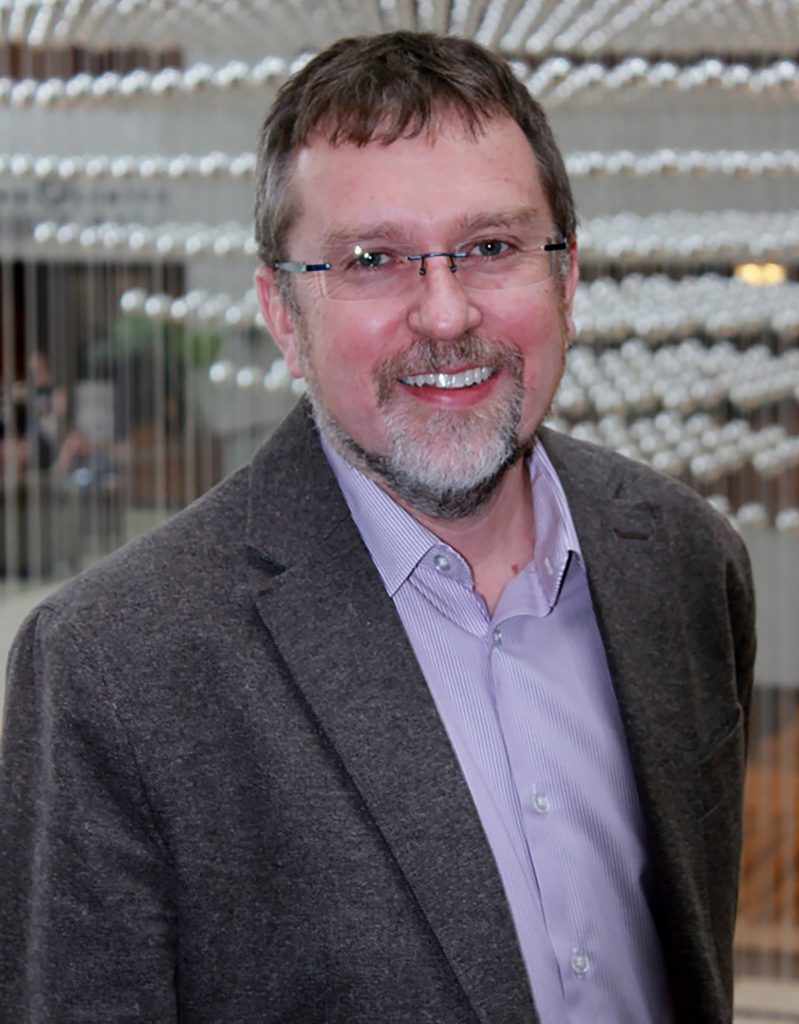
Paul Meechan has served as a biosafety professional for more than twenty years, both in the private sector as well as for the US Government. He is currently the Senior Advisor for Laboratory Safety in the Office Laboratory Science and Safety (OLSS) at the Centers for Disease Control and Prevention. In that position, Paul has the responsibility for providing expert safety advice to leadership on regulatory issues that face laboratories at the CDC and serves as the liaison between the OLSS and other EHS offices within CDC. He also serves at the CDC Editor for the revision to the NIH/CDC publication Biosafety in Microbiological and Biomedical Laboratories. Prior to this position, Paul served as the Director of the Environment, Safety, and Health Compliance Office (ESHCO) for CDC. Paul and his staff of 87 were responsible for the health and safety of the employees, contractors and visitors at the CDC, as well as protecting the environment at and around CDC campuses. Prior to joining the CDC, he served as the Corporate Biosafety Officer at Merck and Co., Inc. from 2003 to 2010, and served as the Biosafety Officer at the Merck facility at West Point, PA from 1996 to 2003. He has also been an Assistant Professor in Biological Sciences at Northern Illinois University. Paul has an undergraduate degree in Biology and Chemistry from SUNY College at Oswego, New York (1977), a Ph.D. in Radiation Biology from the University of Rochester (1983), and a MPH in Occupational Health and Safety Management from Tulane University (2003). He also holds RBP and CBSP certifications from ABSA. He has served two terms on the ABSA Council as Secretary and one term as President, has served as President of the Mid-Atlantic Biological Safety Association (MABSA) and the Southeast Biological Safety Association (SEBSA). He has been a member of numerous Federal taskforces and committees.
Bio coming soon.
C. Mark Ott received his B.S. in Chemical Engineering from the University of Texas at Austin and his M.B.A. and Ph.D. in Microbiology from Louisiana State University. For the past 25 years, Dr. Ott has served as a technical lead at the NASA Johnson Space Center Microbiology Laboratory, which is responsible for mitigating infectious disease risks during human spaceflight. His responsibilities include development of microbiological requirements for spaceflight missions, biosafety risk assessments of spaceflight payloads, and overseeing microbiological monitoring of food, potable water, and spacecraft environments. He has published extensively in the areas of microbial ecology of spacecraft, human and microbial responses to spaceflight, and the development of advanced tissue culture models to investigate infectious disease. In addition, Dr. Ott serves as the Chair for the Biosafety Review Board and the Chair for the Institutional Animal Care and Use Committee at the NASA Johnson Space Center. He is also the Deputy Editor for the Nature Research journal, npj Microgravity.
Dr. Melissa Pearce is the Manager of Operations for the High Containment Laboratories at the Centers for Disease Control and Prevention. She worked as a scientist and interim Safety Officer in the Influenza Division since receiving her PhD from Emory University in 2007. As an active member of the biosafety community at CDC since 2008, she has attended and chaired the Influenza Division Safety Committee and the Office of Infectious Diseases Committee. In her current position, Missy oversees the operations of the high containment laboratories through normal and maintenance modes. She acts as an operations SME and liaison between the scientific program groups utilizing the laboratory space and the various support groups who ensure the facility operates properly.

Dr. Pentella is a Clinical Professor at the University of Iowa, College of Public Health and Director of the Iowa State Hygienic Laboratory. His experience spans over forty years in clinical microbiology and public health laboratories. He is certified as an American Board of Medical Microbiology Diplomate, a specialist in microbiology through the American Society for Clinical Pathology, and certified in infection control through the Association of Professionals in Infection Control. Dr. Pentella is a member of the Association of Public Health Laboratories (APHL) Infectious Disease Committee, the APHL Biosafety and Biosecurity Committee (chair), and the American Society for Microbiology (ASM) Lab Practices Committee. Over the years, he has made several contributions that have improved the practice of clinical microbiology and biosafety. He has written over 45 articles and fifteen book chapters.
Bio coming soon.
Dr. Powers is the Associate Director of Science at the Division of Vector-Borne Diseases at CDC. She received her Ph.D. and postdoctoral training in Molecular Arbovirology focusing on viral determinants of mosquito infectivity and alphaviral evolution. She served as an Assistant Professor at UTMB prior to joining the CDC in 2000. At CDC, she previously served as the Virology Team Lead in the Arboviral Diseases Branch and as the Acting Arboviral Diseases Branch Chief. She has held numerous additional international and national positions including serving as Chair of the Togaviridae Study Group for the International Committee on Taxonomy of Viruses, Chairman of the American Committee on Arthropod-borne Viruses, Deputy Editor for the PLoS Neglected Tropical Diseases journal, Associate Editor for Emerging Infectious Diseases Journal, and as Councilor for the American Society for Tropical Medicine and Hygiene. She is the editor of the International Catalog of Arboviruses which is a repository of data on the prototype strain of all registered arboviruses. Dr. Powers serves as a member of the Subcommittee on Arthropod-Borne Laboratory Safety (SALS) and was a primary author of the 6th edition of the Biosafety in Microbiological and Biomedical Laboratories (BMBL) manual. She has authored over 190 scientific peer-reviewed publications, book chapters, and public health documents on mosquito-borne viruses.
Dr. Imke Schroeder has held the position of Research Project Manager at the University of California Center for Laboratory Safety since 2012. Additionally, she has been an Adjunct Associate Professor in the Department of Microbiology, Immunology, and Molecular Genetics (MIMG) at UCLA since 2001. Her academic achievements include a Ph.D. in microbial biochemistry from the University of Marburg, Germany, and a postdoctoral training in microbial genetics at UCLA.
Imke has extensive knowledge and expertise in laboratory safety, accident analysis, and the identification of leading factors that contribute to unsafe behaviors. Imke frequently conducts safety climate surveys at academic institutions. She is also proficient in laboratory safety training and risk assessment associated with different agents and processes, including BSL-3 best practices.
Imke serves as the administrative liaison for the Safety Training Consortium, a not-for-profit organization focused on developing online safety training for researchers. She has also served on various organizing committees, including the Laboratory Safety Workshop events from 2016 to 2023 as well as the ACS Safety Summit in 2022. Further, her influence has extended to the Editorial Board of the ACS Chemical Health & Safety Journal, where she currently holds the position of Associate Editor as of 2023.
Star Scott is the Green Labs program Manager at the University of Georgia. She has a background in conservation-driven research including ecology, wildlife biology, & endangered species genomics, and is a deep believer in the interconnectivity of all living things. Star is dedicated to making the research enterprise more sustainable & more equitable and is currently focused on resource conservation, landfill diversion, creating and promoting equitable systems, environmental and social justice, sustainable procurement, & building stronger teams through meaningful communication and psychological safety. She serves on the national board for the International Institute for Sustainable Laboratories, is a founding vice president of the Georgia chapter of the International Institute for Sustainable Laboratories and is a Higher Education Association’s Sustainability Consortium fellow and liaison on behalf of the Campus Safety, Health and Environmental Management Association.

Maureen Thompson BSN, RN, COHN-S, RBP is the Assistant Director of Environmental Health and Safety at Emory University and Environmental Health and Safety Officer (EHSO) at the Yerkes National Primate Research Center (NPRC). Her responsibilities include: guidance and oversight for regulatory compliance, environmental health and safety training, BSL/ABSL-3 containment oversight, safety inspections, hazard identification, hazard monitoring and risk assessments. She is also responsible for the follow-up and investigations related to student, volunteer and employee injuries and exposures as well, as the workers compensation program. Prior to working in research Maureen worked as a Neonatal Nurse at Children’s Healthcare of Atlanta and Children’s Hospital of Philadelphia. Early career experiences include work in clinical laboratories and pediatric phlebotomy. Maureen has worked in the field of Environmental Health and Safety for more than 25 years, first as the Safety Officer at Children’s Health Care of Atlanta and then as the EHSO at the Yerkes NPRC. She continues to work with numerous agencies and research facilities to address research related health and safety concerns and development of comprehensive safety programs. She is a voting member of the Emory University Institutional Biosafety and Research Safety Committees and is the EHSO representative on the Institutional Animal Care and Use Committee
Dr. Marc Valitutto is a senior field veterinarian at EcoHealth Alliance, where he focuses on pandemic preparedness throughout the world. He is involved in collaborative research investigating wildlife as a zoonotic disease reservoir, as well as identifying ways of protecting endangered species in their natural habitats. His primary focus is on animal welfare and occupational safety through the advancement of animal biosurveillance methods and developing practical biosafety solutions for field participants, respectively. He previously served as global lead for the USAID Emerging Pandemic Threats PREDICT project in Myanmar, where he and his colleagues detected novel coronaviruses in endemic bat populations. He received his doctorate of veterinary medicine from the University of Pennsylvania and completed a four-year residency in zoological medicine and surgery at the Wildlife Conservation Society and Cornell University. Prior to joining EcoHealth Alliance, he served in various roles focused on animal health and conservation.
Dr. Velazquez is a veterinarian with a background in biomedical research focused on animal models of infectious diseases. He earned his veterinary degree from the University of California, Davis while completing a doctoral program in microbiology. During that time, he published multiple studies demonstrating how the gut microbiome can shape different intestinal disease phenotypes. Currently, Eric is pursuing a laboratory animal medicine residency at the Centers for Disease Control and Prevention. His primary responsibility is to provide clinical care for a wide portfolio of species that present with common health concerns. Additionally, he provides training for investigators and performs protocol support in the high containment laboratory.
Jay Vietas is the Chief, Emerging Technologies in the Division of Sciences Integration at the National Institute for Occupational Safety and Health. He leads a team of scientists in the study of emerging technologies on worker health and practical application of this knowledge. This includes research on the use of advanced materials, synthetic biology and biomanufacturing, and artificial intelligence. Additionally, he is responsible for leadership of NIOSH’s Nanotechnology Research Center and Future of Work Initiative.
Jay obtained his PhD from the University of Cincinnati in Environmental Health, graduate degrees in environmental health and engineering from Colorado State University, and an undergraduate degree in Chemistry from the United States Air Force Academy. Jay is a Certified Industrial Hygienist, a Certified Safety Professional and a member of the American Industrial Hygiene Association.
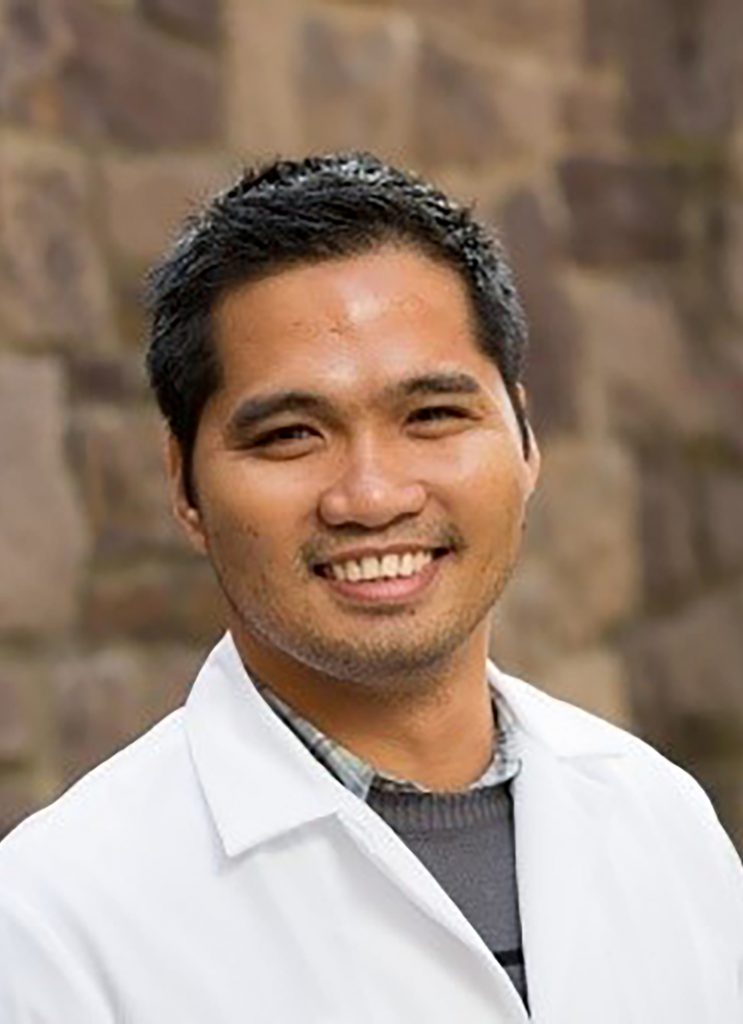
Jason Villano is the Director of Rodent and Rabbit Resources and an Assistant Professor of Molecular and Comparative Pathobiology at Johns Hopkins University in Baltimore, Maryland. Dr. Villano earned his veterinary degree from the University of the Philippines, a Master of Science degree in Biomedical Engineering at the Nanyang Technological University in Singapore, and a Master of Science degree while pursuing residency in Laboratory Animal Medicine at Penn State College of Medicine in Hershey, Pennsylvania. He has served as clinical veterinarian at the Singapore General Hospital and at the University of Texas Medical Branch before joining the faculty at the University of Michigan Medical School. A Diplomate of the American College of Laboratory Animal Medicine (ACLAM), he currently serves as an ad hoc consultant for AAALAC International and is an active member and leader of the American Association of Laboratory Animal Science (AALAS), ACLAM, and the Association of Primate Veterinarians (APV). He has written a book and book chapters and several scientific and review papers in the field of laboratory animal medicine and science.
Zachary P. Weiner Currently works at CDC as team lead of the Zoonoses and Select Agent Laboratory (ZSAL) within Bacterial Special Pathogens Branch (BSPB). ZSAL is responsible for diagnostics, surveillance, and outbreak investigations for several high consequence bacterial pathogens, including Bacillus anthracis, welder associated anthrax Bacillus species, Burkholderia mallei/pseudomallei, Brucella spp., and Leptospira spp. Zach graduated from North Carolina State University with B.S. degrees in microbiology, food science, and science, technology, and society in 2008. Zach got his PhD from the University of Virginia in 2013 where he studied how exotoxins produced by Bacillus anthracis modulate the innate immune system. Zach was awarded an ASM/CDC postdoctoral fellowship where he worked in vector borne diseases studying the role of Borrelia burgdorferi outer membrane proteins in escape from the tick midgut. Zach was a member of the first class of the Laboratory Leadership Service where he was placed in the Poxvirus and Rabies Branch (PRB). Prior to joining ZSAL, Zach served as the lead of the Quality and Compliance Team within PRB.
Scott Weitze is the Technical Director for the ACT Program at My Green Lab, the non-profit organization unifying the biotechnology and pharmaceutical industry to ensure research, product development, and procurement reflect the highest standards of environmental responsibility. He is coordinating the ACT Label revision process with multiple stakeholders to support industry-wide adoption of the ACT Label and best practices in lab product sustainability. Scott worked for seventeen years as a Lab Director in research and biotech manufacturing at Labcon after receiving his MS in molecular genetics from the University of California, Berkeley, and taught bioinformatics and genetics at San Francisco State University.
Jacob Werner is a senior architect and laboratory planner who has devoted his career to the design of intuitive environments for scientific discovery; he is an Associate Principal with Ellenzweig. Jacob is particularly interested in the evolution of science education and how this evolution is changing the design of academic laboratories. Jacob is a passionate advocate for sustainable design and design research; he holds credentials as a LEED AP BD+C, WELL AP, My Green Lab Ambassador, and Passive House Consultant. Jacob is a leader in the International Institute of Sustainable Labs (I2SL), serving on the Labs2Zero Technical Advisory Council. Jacob has spoken extensively and authored numerous technical publications, about both laboratory design and sustainability; his latest research includes I2SL’s “Decarbonizing Laboratories: A Primer.”
Liz York, FAIA joined the Office of Federal High-Performance Green Buildings, as a Sustainable Design Expert for the US General Services Administration in 2023. Previously, Liz served as Senior Advisor for Buildings and Facilities Policy and Innovation and Chief Sustainability Officer for the Centers for Disease Control and Prevention. Liz brings innovation to facility policy and operations and implements healthy, resilient, equitable work environments for the federal government. She provides thought leadership and architectural expertise within the Federal community of health experts and is a key liaison between the fields of design and health. She has strengthened policy and understanding around the health impacts of the physical environment, gender issues in design, access to healthy food, and design effects on health equity. She embraces the architect’s role as steward of societal values and focuses attention on policy and tools that help move the profession towards problem solving for these larger issues.
Liz served as the first chair of the national AIA Committee for Climate Action and Design Excellence where she worked to thread the triple bottom line into the actions, tools and communications created for architects. She has received two White House awards for Sustainability, been named to the Atlanta Business Chronicle’s Sustainability Who’s Who and has been recognized by the American Institute of Architects as a Fellow for her work to impact health and well-being by empowering architects to build better environments.
Liz is a registered architect and holds a Bachelor of Science and a Master of Architecture, both from the Georgia Institute of Technology. Her hobbies include running, yoga, gardening, travel and home improvement.
